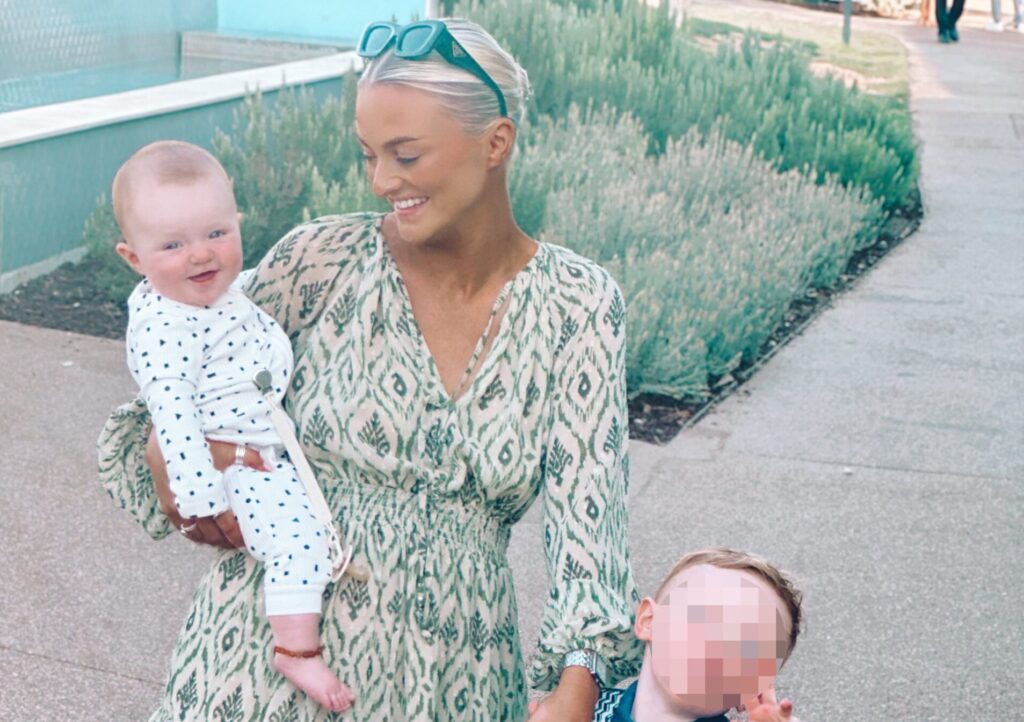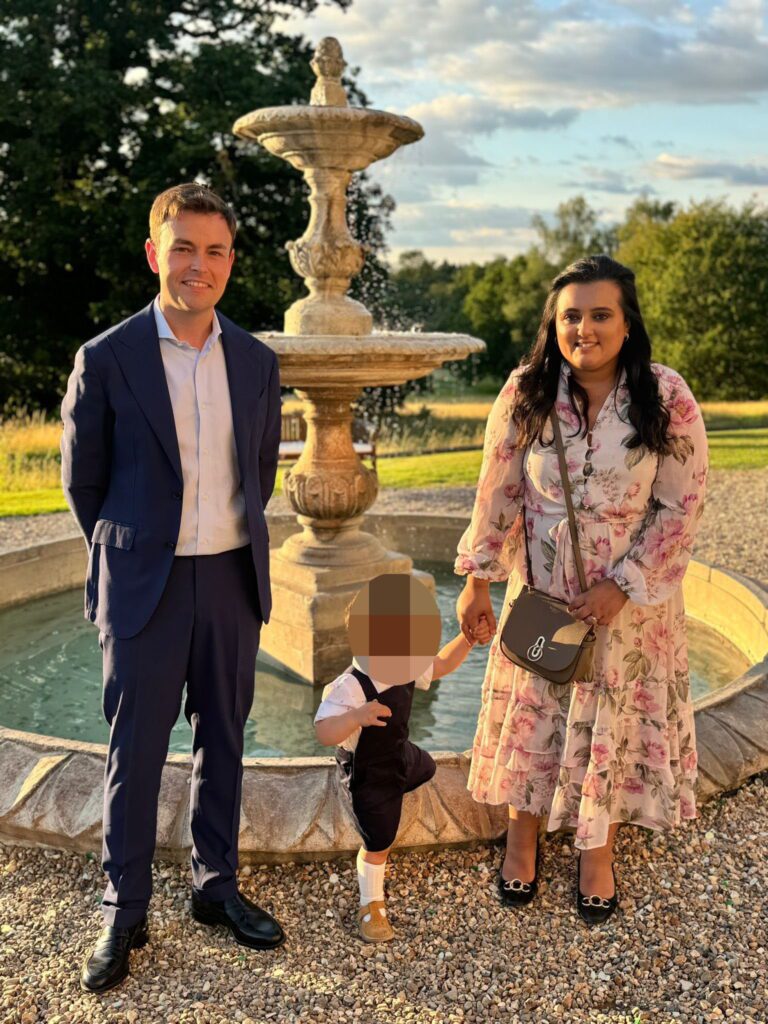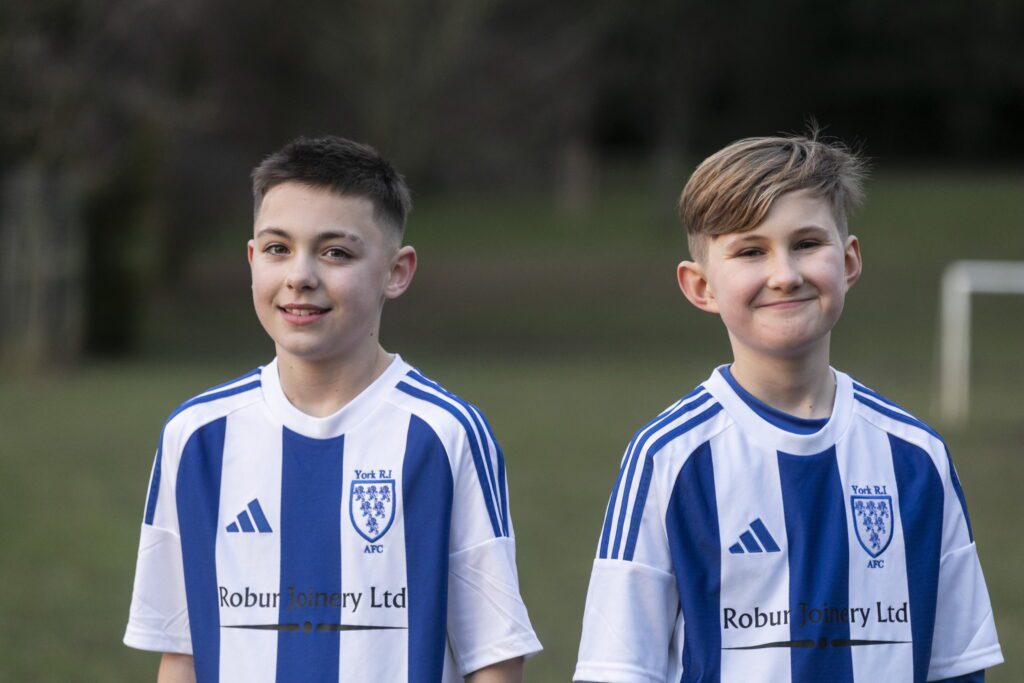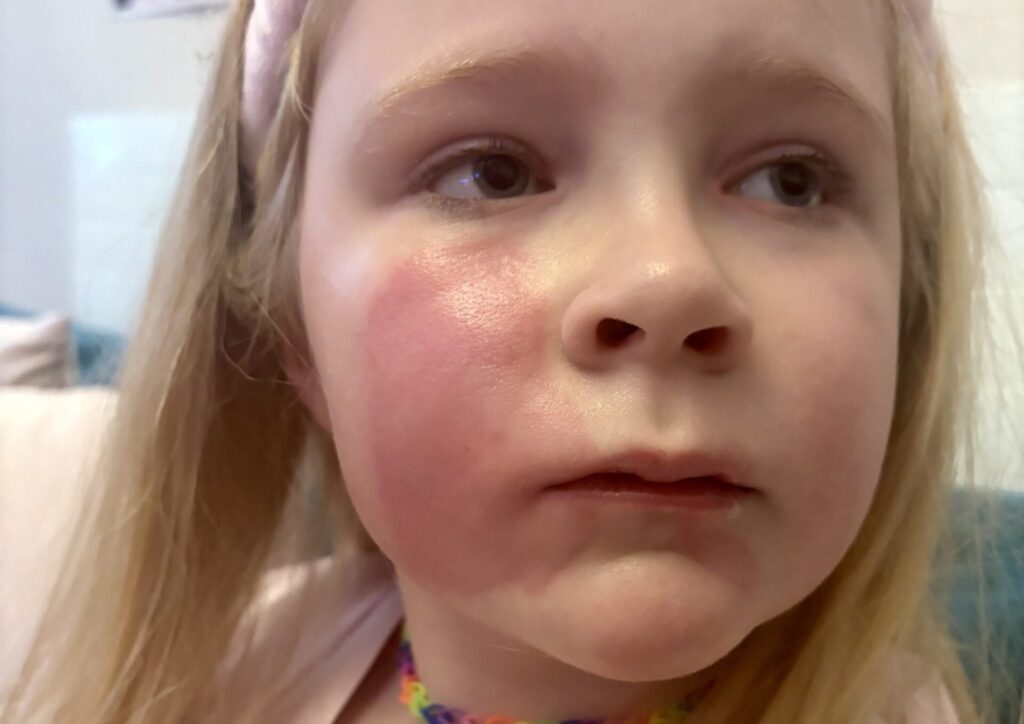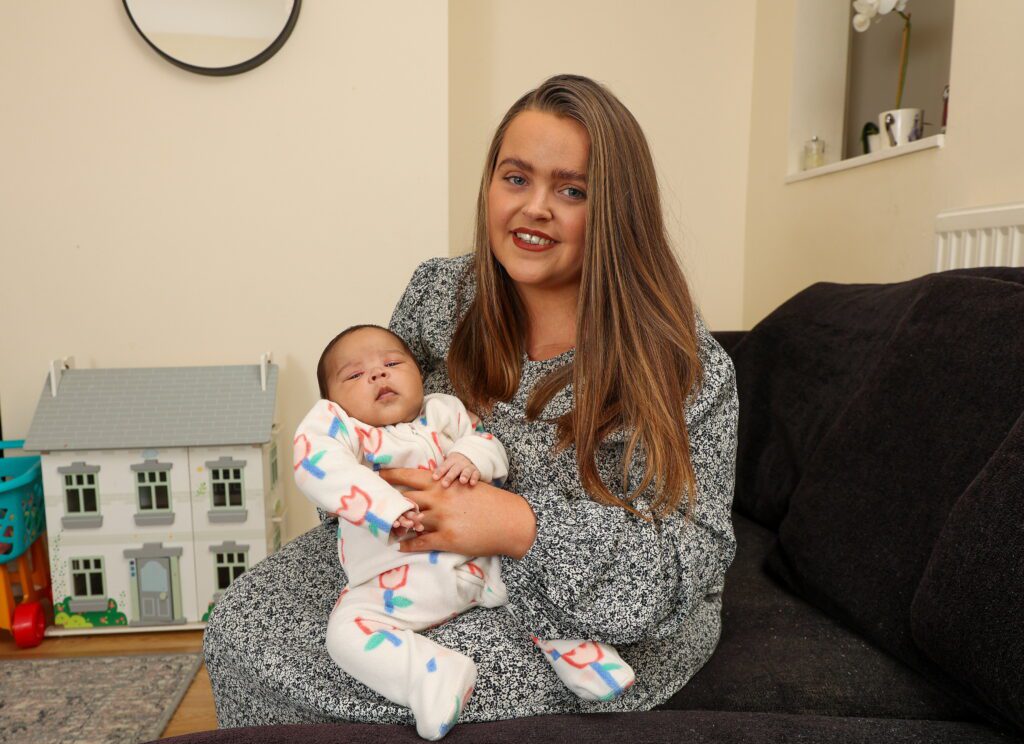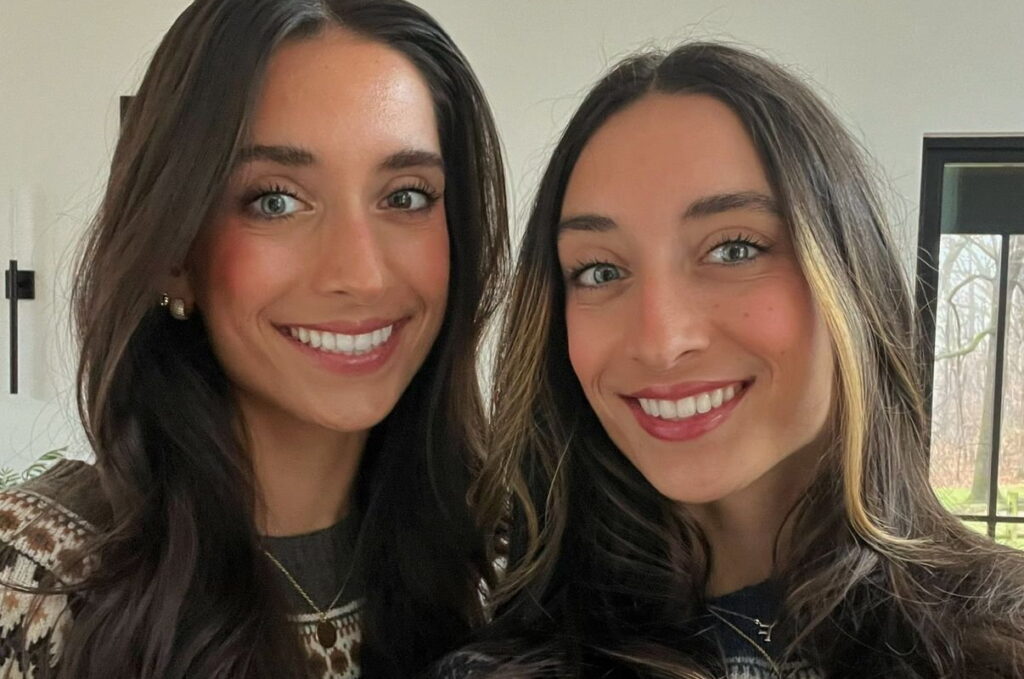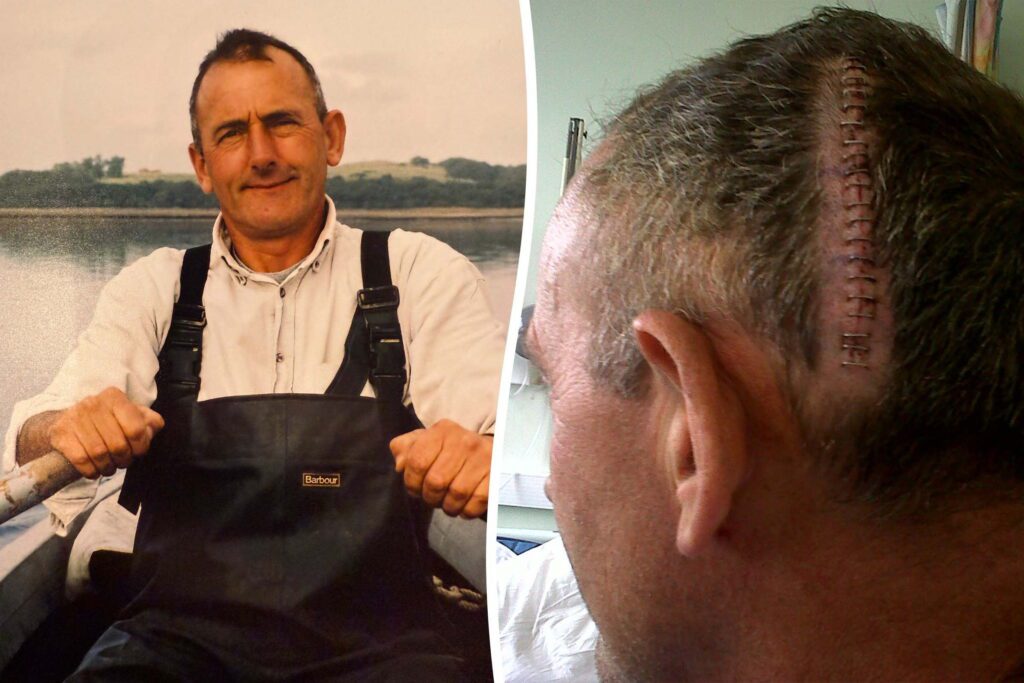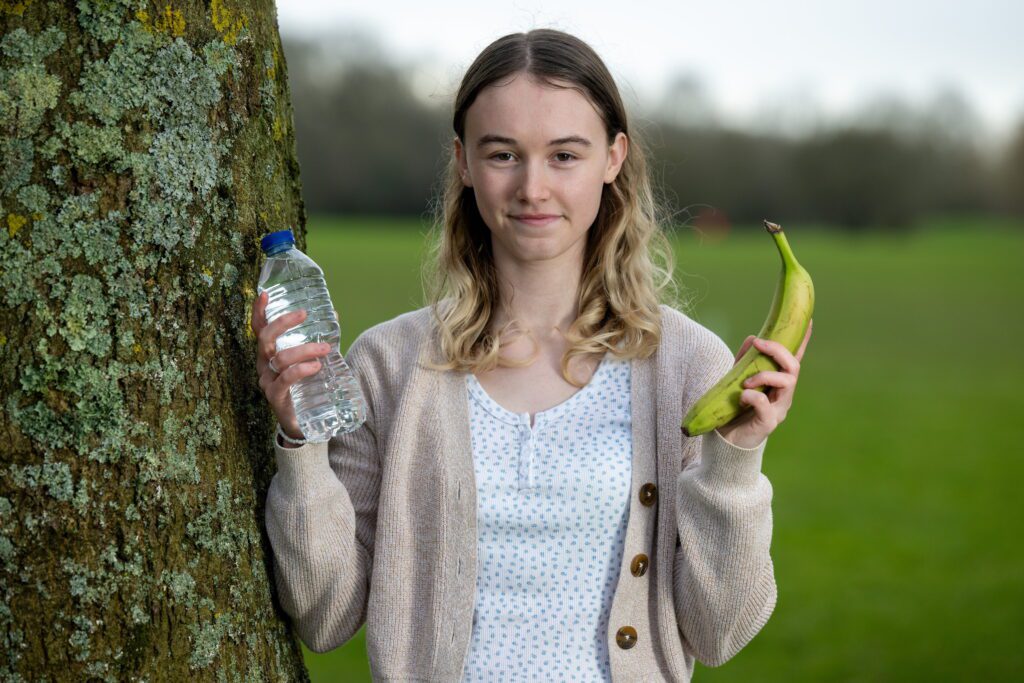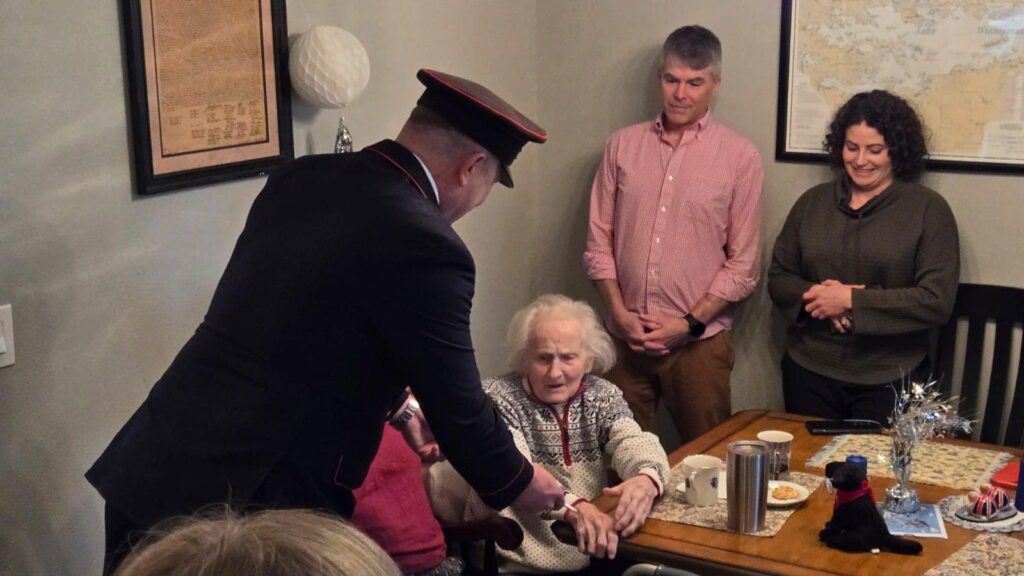“I’m a gentle parent – I don’t force my five-year-old to say sorry”
A ‘gentle parent’ says she doesn’t force her five-year-old son to say sorry as it is “disingenuous” – and says it’s taught him to “hold empathy” and communicate his feelings.
Kelly Medina Enos, 34, turned to gentle parenting when she was struggling with her son, George, then 18 months old, hitting her.
The mum turned to TikTok to share her worries and a stranger recommended she looked into gentle parenting – a style that focuses on empathy, respect, and understanding.
Kelly found it “ridiculous” at first but after researching she started to try it out – dropping “don’t” from her vocabulary and telling George what she’d like him to do instead.

She also stopped forcing him to apologise and instead guided George to step back and look at what’s happened in a situation.
Kelly doesn’t force any isolation – such as the ‘naughty step’ or ‘time out’ – but will offer ‘calm down corner’ as an option if he wants to some alone.
She is now mum to a daughter, Ariella, 14 months old, and has started to gentle parent her too – teaching her baby sign language so she can communicate if she wants more food or drink.
Kelly, a certified gentle parenting coach, from York, North Yorkshire, said: “I don’t force my child to say sorry.
“A child doesn’t develop empathy until they are around 11 years old.
“Expecting a child to have empathy is a learnt skill.
“If we say ‘go and say sorry’ – if say they snatched a toy – it’s forced.
“You find you haven’t allowed child to step back. Instead say – ‘what’s happened here? ‘How do you think that person is feeling?’ ‘What can we say?’
“Otherwise it’s disingenuous.
“It’s not that we don’t want them to say sorry but there is a difference between telling them what to do.
“We still guide them through.
“We teach our children how to be better next time.”
Kelly was struggling with George when he was 18 months old and says she had “no parenting style”.
She said: “He started to smack me and hit me.
“I thought ‘what do I do?'”
Kelly posted on her TikTok account and a stranger commented asking if she’d looked into gentle parenting.
She said: “The videos I saw at fist I thought surely it’s just talking gently.
“I thought it was a bit ridiculous.”
But Kelly felt “so lost” and wanted to “try anything” to help her and researched into the type of parenting further.
She started with trying to switch up her vocabulary.
She said: “Climbing was a huge thing for me. George was climbing on everything. I was saying ‘get down’ but that didn’t seem to land at all.
“I started saying ‘feet on the floor please’. I was astonished at the difference by changing the way I was speaking to him instead of telling him what I don’t want.
“I started to remove the word ‘don’t’. I still had discipline.
“I told him what I would like him to do.”

She now uses phrases such as “hands off” as much as she can instead of “don’t touch” or “no”.
Kelly also learnt to stop forcing George to say sorry and says it’s helped with his understanding of empathy despite his young age.
She said: “He does hold empathy and he’s incredible at communicating his feelings.
“He can come home in huge frustration and I hold him and he crumbles.
“He’ll say he’s had a bad day and offloads.
“If I hadn’t allowed him to feel and put him in his room, the naughty step or time out would he have opened up to me?”
Kelly doesn’t use “forced isolation” with her kids.
She said: “With forced isolation the child often becomes more of a people pleaser or rebels.
“They learn they have no voice and their feelings don’t matter.
“In time out a child is told to ‘sit and think about what you’ve done’. The child is not thinking how they could have dealt with that better.
“They learn ‘I need to take away my feelings of frustration and anger and then I’m deemed lovable’.
“We will stay away from forced isolation but we do a calm down corner which I offer to George.
“I’ll ask him ‘would you like some time in the calm down corner?’
“It’s got books and a breathe board – it’s a non-sensory nook.
“It’s an option.”
Through her own parenting journey Kelly decided to become a parenting coach and qualified in September 2024.
As part of her course she had to do a lot of self-work which really helped her look at why she was becoming frustrated at certain behaviours George presented.
She said: “I really struggled because of the way I was raised – there was a lot of shouting.
“It was distilled in me.
“I shouted quite often.
“I worked out I was expecting quite a lot of George.
“I said out loud ‘why does he act like such a child?’
“He used to pull out all the baby wipes.
“I remember the frustration.
“With Ariella I just think ‘put them back’.”
Kelly has started gentle parenting with Ariella already by teaching her baby sign language so she can communicate.

She said: “We started on baby sign language with her.
“It’s to alleviate that frustration.
“Ariella can communicate when she wants more food.
“After every single meal she’ll ask for more.
“How would our relationship be if you don’t know how to communicate if she wants more food?”
Kelly says gentle parents often get confused with permissive parenting – where parents seek peace, avoid boundary control and allow the child to be in control.
She says she’s not a “perfect parent” but will still place boundaries with her children.
She said: “Nobody never shouts.
“No one gets it right all day everyday.
“Gentle parenting is when we seek connection even when correcting a child.
“We allow space for bigger emotions and give them root lessons without blaming and shaming.
“People say it’s an easy way out – it’s probably the hardest form of parenting.
“I wish people would give it a change before they make a snap judgement.”
Follow Kelly on Tiktok @kellymedinaenos
“I’ve battled 5 tumours and discovered one after unusual symptom – craving olives”
A dad who has battled four brain tumours – discovering one after developing a craving for olives – is raising £40k for potentially life-saving treatment in the US.
Dan Horrocks, 33, was diagnosed with his first life-threatening tumour in August 2011 and went through brain surgery and started regular scans.
In May 2014 he was told he had another brain tumour and required surgery and radiotherapy.
A third mass in his brain was then identified in July 2018 after Dan developed an unusual symptom and started craving olives – which he hadn’t liked before.
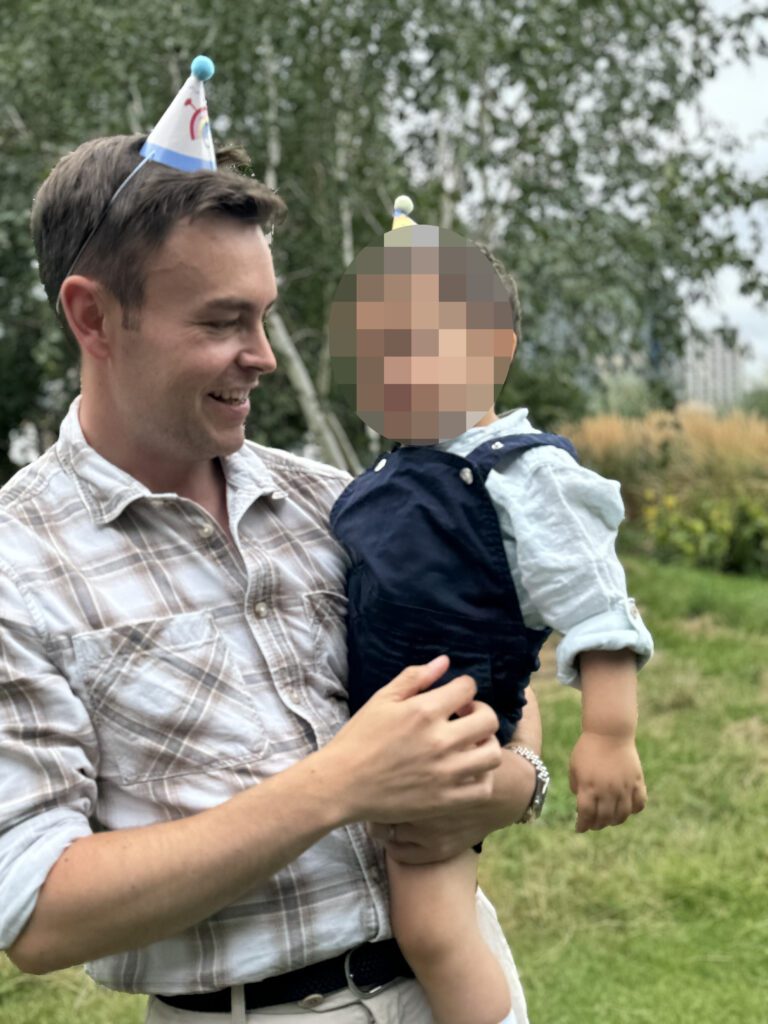
This was followed by his latest – a tumour in his brain and one on his spine – which were spotted in October.
After 14 years including radiotherapy, four brain surgeries, one spinal operation, and six-monthly scans, Dan is now on his ‘last roll of the dice’.
The dad-of-one has almost run out of treatment options in the UK and has raised £40k to go to MD Anderson Cancer Center in Houston Texas, US, to explore pioneering treatments including genetic testing to find a personalised remedy.
Dan, a senior parliamentary researcher and Metropolitan Special Constable, from Battersea London, said: “I’m utterly bowled over and delighted with the amount of support and generosity we’ve received.
“I’m so shocked and overwhelmed with how quickly the money has come in.
“This could be the first step towards an innovative new treatment we can bring to the UK.
“The NHS staff have all been amazing – they said they can do surgeries but not much else more.
“That felt a bit like the end of a road and I’ve always tried to avoid that.”
Dan and his wife, Sonia Khan, 32, who works in public affairs, have raised over £50k so far – smashing their £40k fundraising goal.
The money will be spent on travel and consultations – including genetic tests on Dan and his tumour samples – to see if a personalised treatment can be found.
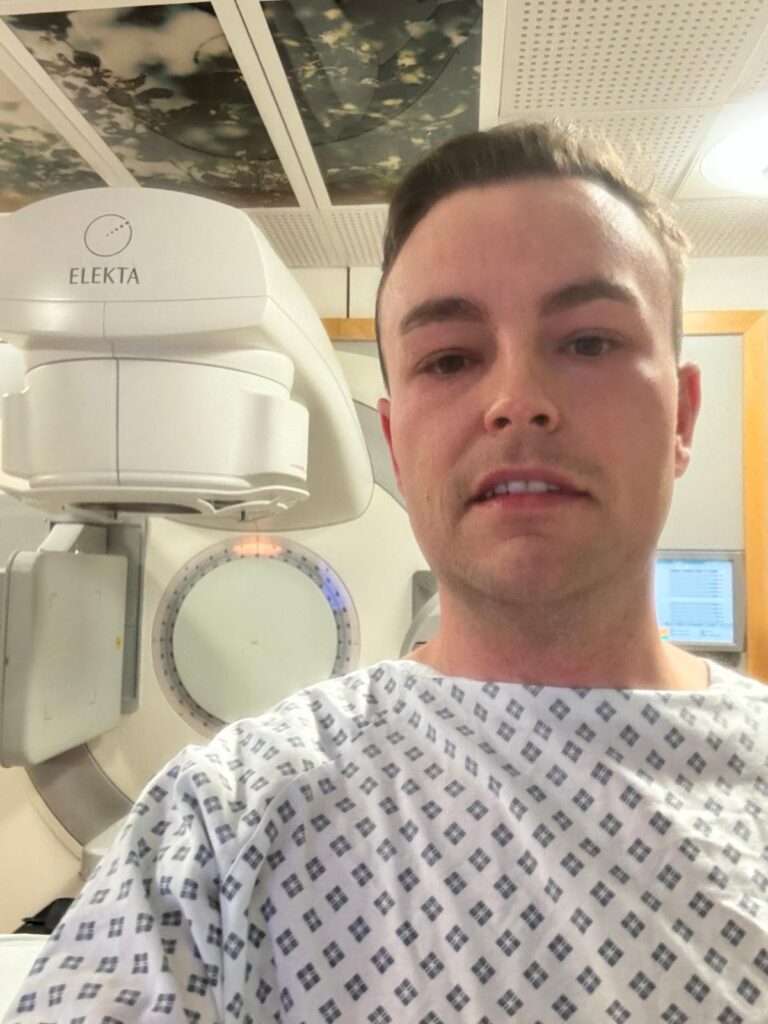
The couple say more targeted radiotherapy is also available in the US.
The couple – who both grew up near Birmingham, West Midlands – met and fell in love in 2010 when Dan was studying politics and international relations at Aston University and Sonia was at college.
Dan was diagnosed with his first of four brain tumours after suffering excruciating headaches, sickness, and dizziness.
GPs gave him medication to help with his balance, recommended acupuncture, and prescribed antidepressants.
Eventually the golf-ball sized grade two benign tumour was diagnosed after a free eye test at Vision Express when the optician spotted swelling on Dan’s optic nerves.
He was rushed to A&E at Russells Hall Hospital then had brain surgery the next day at Queen Elizabeth Hospital (QEH) in Birmingham, followed by radiotherapy.
Dan said: “I’m eternally grateful to that optician, that eye test saved my life – I never turn down a freebie.”
Dan had to learn to walk, talk and “think” again after the surgery.
He was left with difficulty balancing, and problems with hearing on his left side and reduced use of his left hand.
Steroids made him gain weight and caused swelling which knocked his confidence.

Despite his illness Dan graduated with a 2:2 degree and the pair moved to London in 2013.
Dan was diagnosed with a second, grade three, tumour – in his brain stem after a routine scan.
All Dan’s five tumours have been apendymomas – rare severe tumours which usually affect children around age five or adults around age 45.
Dan said: “The mask they fit for targeted radiotherapy is so tight you can’t blink.
“I experienced panic attacks for the first time – it was horrible.”
The cancer came back again at the front of his brain where emotions are processed.
It was picked up by another routine scan but also Sonia and Dan noticed odd symptoms.
Dan started craving olives – which he hadn’t liked before – and also wanting spinach and tomatoes for breakfast.
He had brain surgery again at QEH and then radiotherapy at the Royal Marsden Hospital in Chelsea.
Dan said: “After the surgery for the third tumour I found it easier to express my emotions – I’m more empathetic and get upset more easily.”
Dan adopted his therapy dog Bella, a Shih Tzu, now nine, from Battersea Dog’s Home in 2019.
Bella helps him keep to a routine because his short-term memory has been damaged by radiotherapy.
Dan and Sonia married in 2020 and had their son, Elijah in 2022.
Dan said: “He’s a great happy little boy and gives me new determination to get through this.
“The idea of him having to grow up without his dad is too upsetting.”
Dan was diagnosed with a stage three tumour in his brain and one in his spine in October.
He had brain surgery in November and spinal surgery in December.
The tumours are in cells which line the paths where cerebral spinal fluid moves through the spine, and the cancer could come back anywhere in his spine or brain.

He’s having radiotherapy on his brain and spine at the Royal Marsden Hospital in Sutton.
This time it will take Dan up to six months to recover.
And doctors have said he’s had the maximum radiotherapy they can safely give him on the NHS, and chemotherapy is only likely to be 14% successful in treating his tumours.
If a treatment can be found in the US Dan and Sonia will have to fundraise again, they’ve said.
Dan says he operates on an ‘ignorance is bliss’ protocol to help him cope.
He said: “I don’t ask the doctors for a prognosis because I don’t want to know – my situation is so rare they wouldn’t be able to tell me anyhow.
“I just go through every day and only think about this stuff if I have to.
“I find having a positive attitude is the only way forward.
“The treatment I’m having now puts me at three times the risk of heart attack or stroke, so to borrow my favourite phrase of Churchill’s I have to keep buggering on.”
Link to Dan’s GoFundMe page – https://www.gofundme.com/f/dans-final-chance-to-fight-brain-cancer?attribution_id=sl:035ce9e8-a810-4231-8e07-582f32597e33&lang=en_US&utm_campaign=man_sharesheet_dash&utm_medium=customer&utm_source=copy_link
Girls football club accused of cheating because some of them have short hair
A team of young girl footballers has launched a campaign defending their right to have short hair – after some were accused of being boys during a game.
The girls of York Railway Institute (YRI) AFC u12s have mounted the ‘Girls can have short hair. Get Over It’ campaign after a series of complaints from parents and coaches of rival teams.
In one recent incident a game was actually stopped because the rival team wanted to ensure that all the players were actually girls – leaving some of the York players upset..
YRI AFC players Camille Porhel and Flo Topham, both 11, have short hair cuts and say that going to matches now made them anxious.
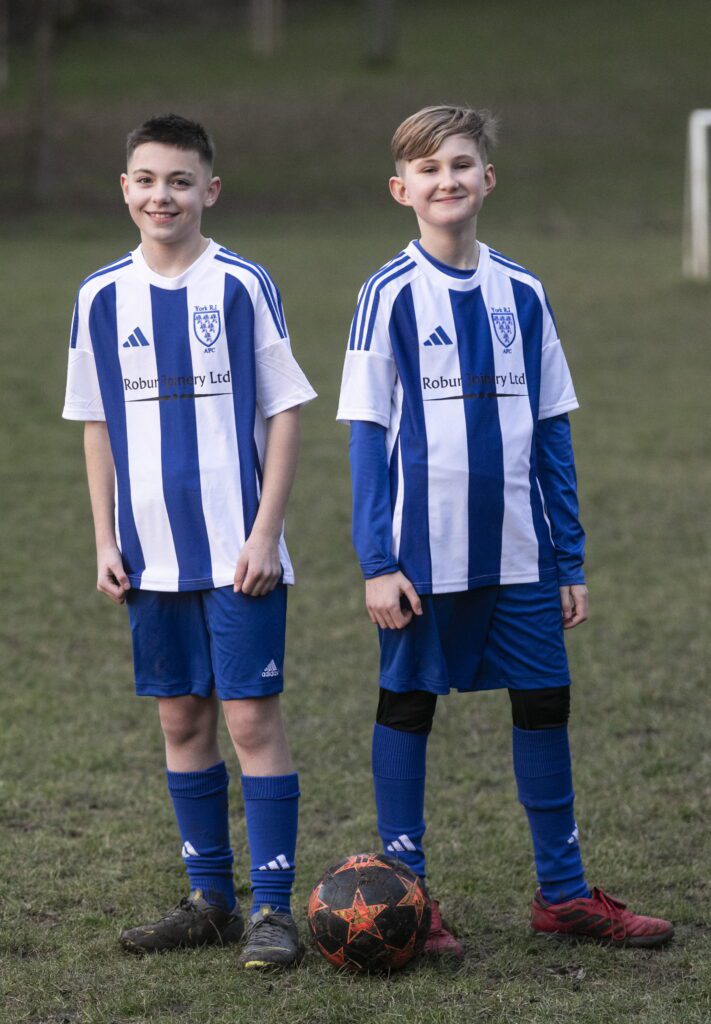
Flo said: “I feel quite angry and sad when people think I am a boy, and I feel anxious about going to matches or tournaments.
“Yes it does upset me definitely because they are commenting on how I look, and I am a girl and I am just being me.”
Camille, who started playing the sport when she was five, added that she can’t believe people are still making the remarks in the 21 century.
She said: “I get very annoyed because nobody can focus on what they are doing on the pitch but instead have to listen to the comments and it just makes the experience so unpleasant.
“It’s the 21st century and people are still making remarks on girls’ short hair.
“It makes me wonder what kind of society our future will be like for young footballers my age.”
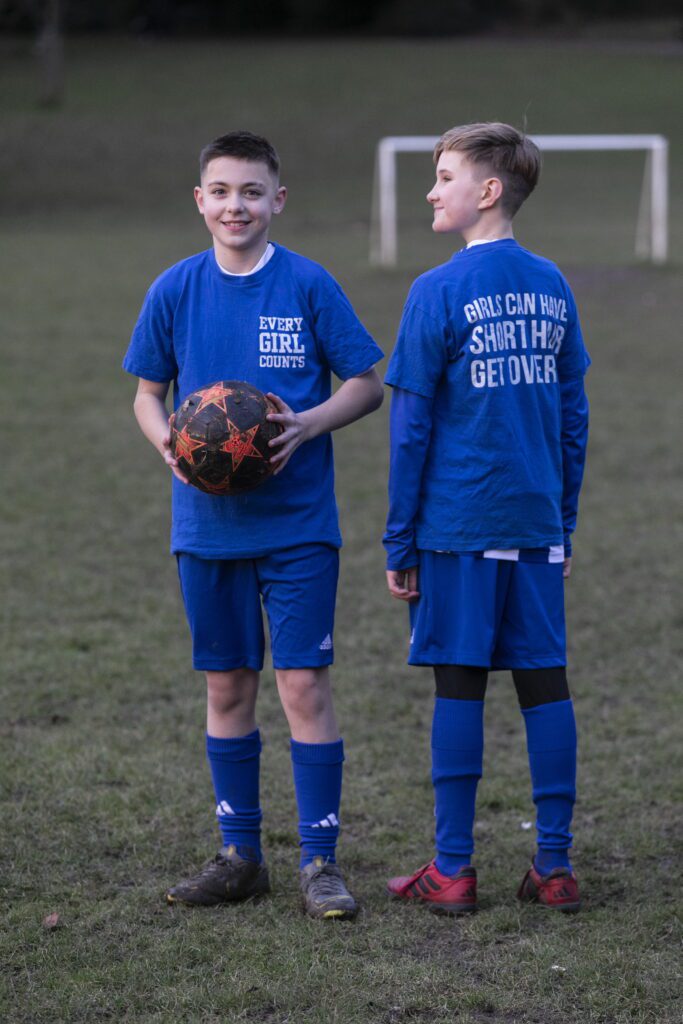
The youngsters have now started a campaign to support young girls with short hair and wear t-shirts that say ‘Girls can have short hair, get over it’ when they are warming up before matches.
They hope the campaign will help other girls “not feel alone” and will encourage other parents and coaches to not say “unkind things.”
Camille said: “I think it will help because it shows that you are not alone when people are being ignorant and you have support no matter how secluded you feel.”
Flo said: “Yes I do think it will help other girls because we are trying to spread our word, and let them know they are not alone – also that words can really hurt.
“It’s especially bad when it’s other parents or coaches saying unkind things.”
Camille’s mum Aimée Little, 50, says that both girls are still playing football which is “very courageous” but feel like they are more anxious before playing a match.
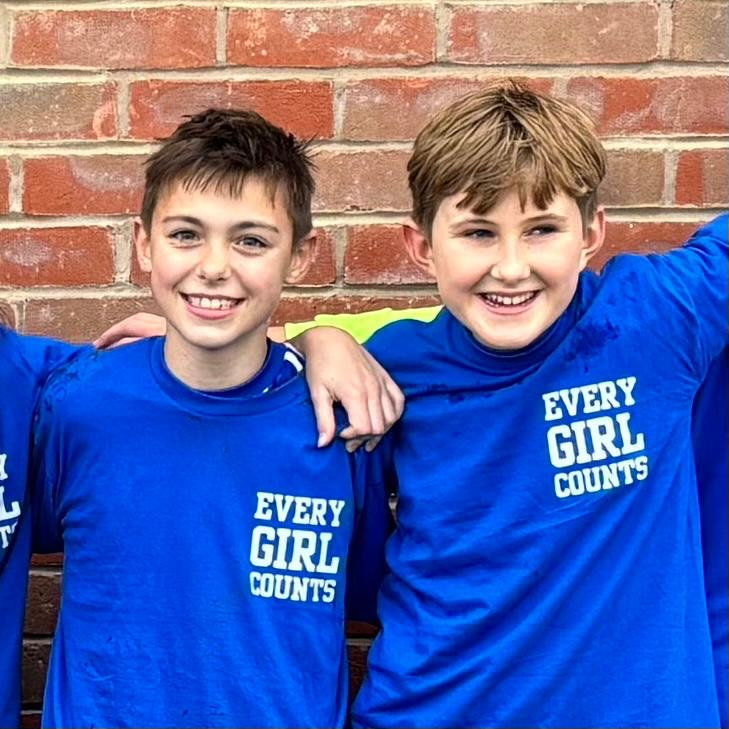
She said: “Both girls are just girls who want to play football and have short hair – they find it really bizarre that there would even be any fuss about it.
“To think that we are still talking about this in 2025, is pretty crazy.
“In the past, it was really accepting that women and girls would have short hair.
“It’s like if you are a good footballer and you’ve got short hair, then you must be a boy – and that is really bizarre.
“They are playing, which is very courageous of them, but they are more anxious around playing football because of the abuse that they get from other parents and other coaches.”

Aimée, of York, North Yorks., says they’ve had an incredible amount of responses from their campaign, from other people who have experienced the same thing.
She said: “The amount of responses we’ve had from our social media campaign is actually quite sad.
“It’s everywhere in grassroots football – we aren’t the only team to be experiencing this.
“So many people have said their daughter has experienced it or that they’ve experienced it, so I think we’ve touched on something much bigger.
“People don’t even realise that this level of discrimination exists in girl’s sport.”
Girl left with burns after mum kissed her while wearing lip-plumping gloss
A mum is warning other parents after she kissed her daughter while wearing a lip-plumping gloss – and gave her a “red burn”.
Sarah Davies, 41, applied the Too Faced Lip Injection Maximum Plump Extra Strength lipgloss on February 1, before taking her daughter, Ava Davies Spurr, eight, to a spa themed birthday party.
Two hours after putting on the gloss and forgetting she was wearing it, Sarah gave Ava a kiss on her cheek and was shocked when a red mark immediately appeared – with a clear lip mark.
The mum-of-one washed the product off with water and went straight to her local chemist – who advised her to apply Sudocrem and gave Ava antihistamines.
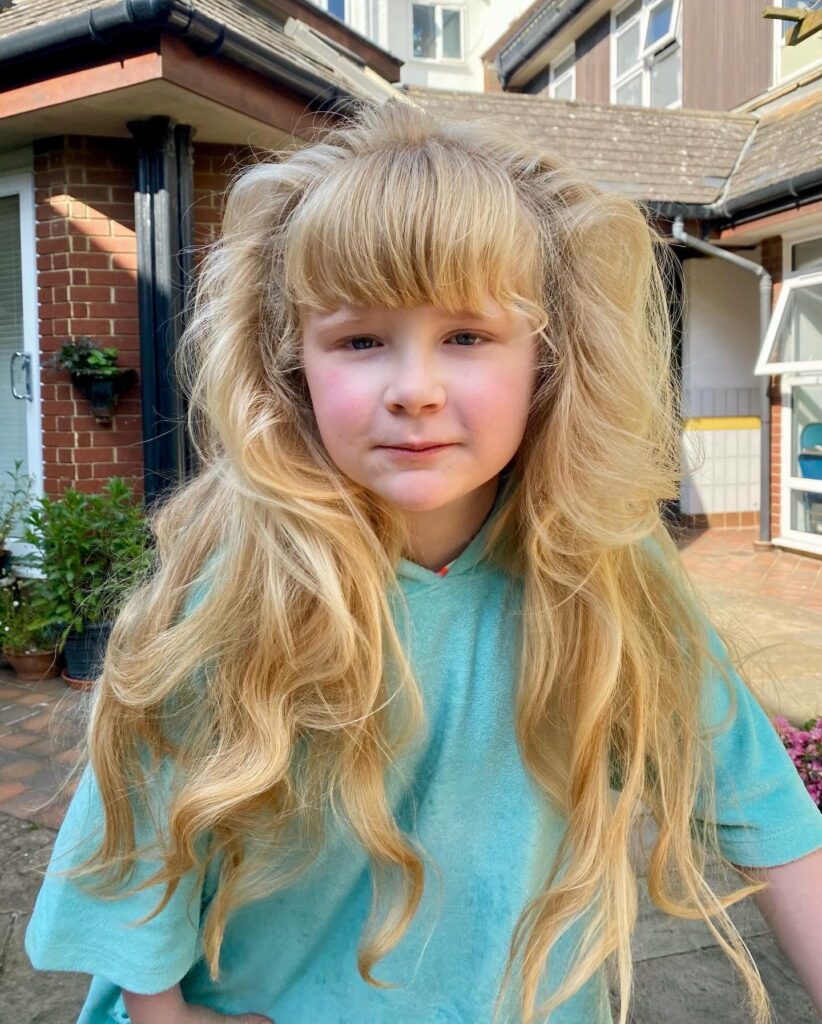
Luckily the mark went down and Ava has been left with no lasting damage but Sarah wants to see clearer warnings about the risk plumping glosses.
Sarah, a health care assistant, from Brighton, East Sussex, said: “I have only used it a couple of times – it burns when you put it on.
“It does really work.
“I didn’t feel any product on my lips and I kissed Ava on the cheek.
“It immediately came up red.
“It was like a topical burning.
“I saw a lip mark and realised what it was.”
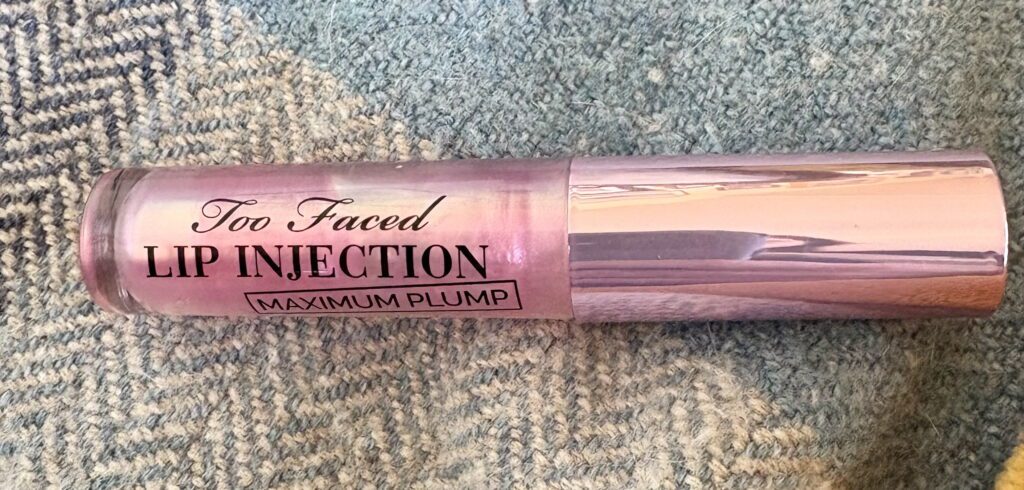
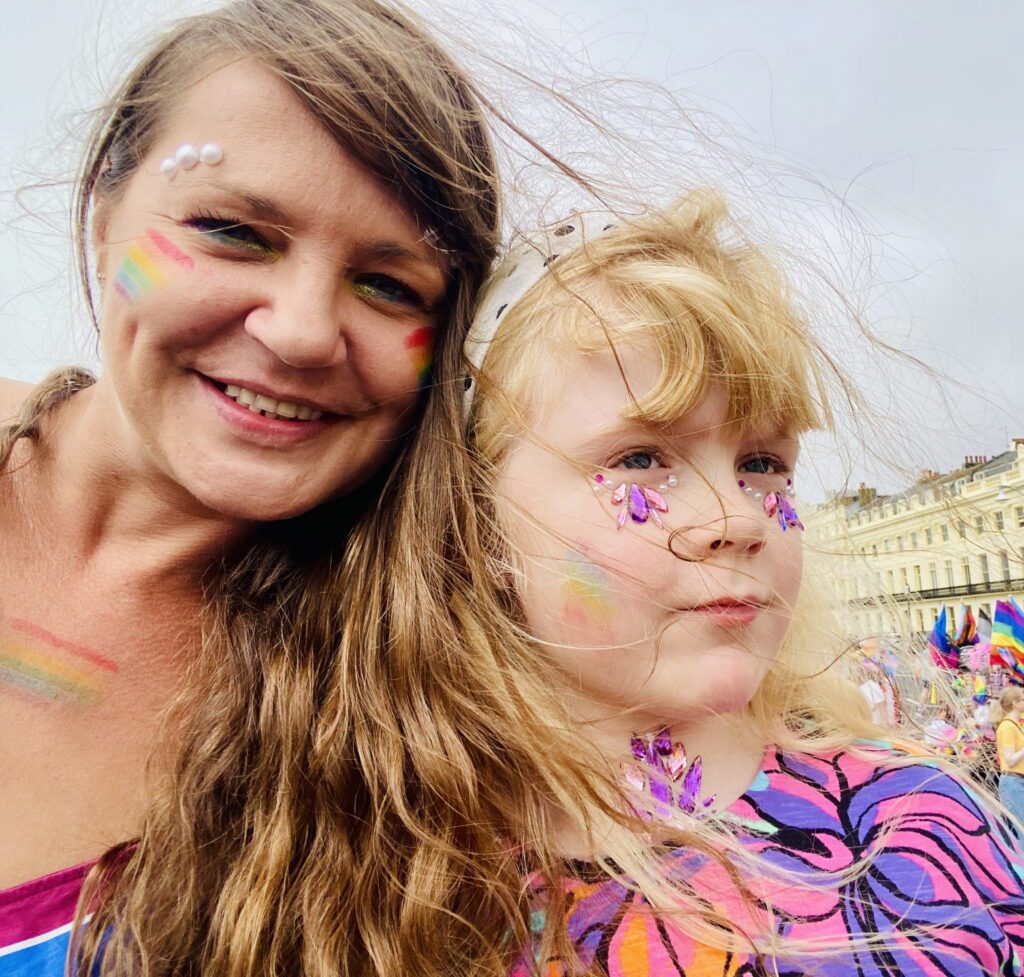
Sarah had bought the product over Christmas to try out – and said she didn’t see the warnings about the dangers to children as she had thrown the packaging away.
She said: “It’s common sense.
“I just didn’t think after two hours it would still do that.”
The capsicum in the lip gloss creates a burning sensation to plump the lips and does include an ingredients list in the packaging.
It says not use the product anywhere but your lips and to keep away from children.
When Sarah saw the red mark after kissing her daughter she acted quickly.
Sarah said: “Within a minute it was hot to the touch.
“She said it was burning.
“I wasn’t sure if it was going to blister.
“If that was a newborn baby it could have been awful.”
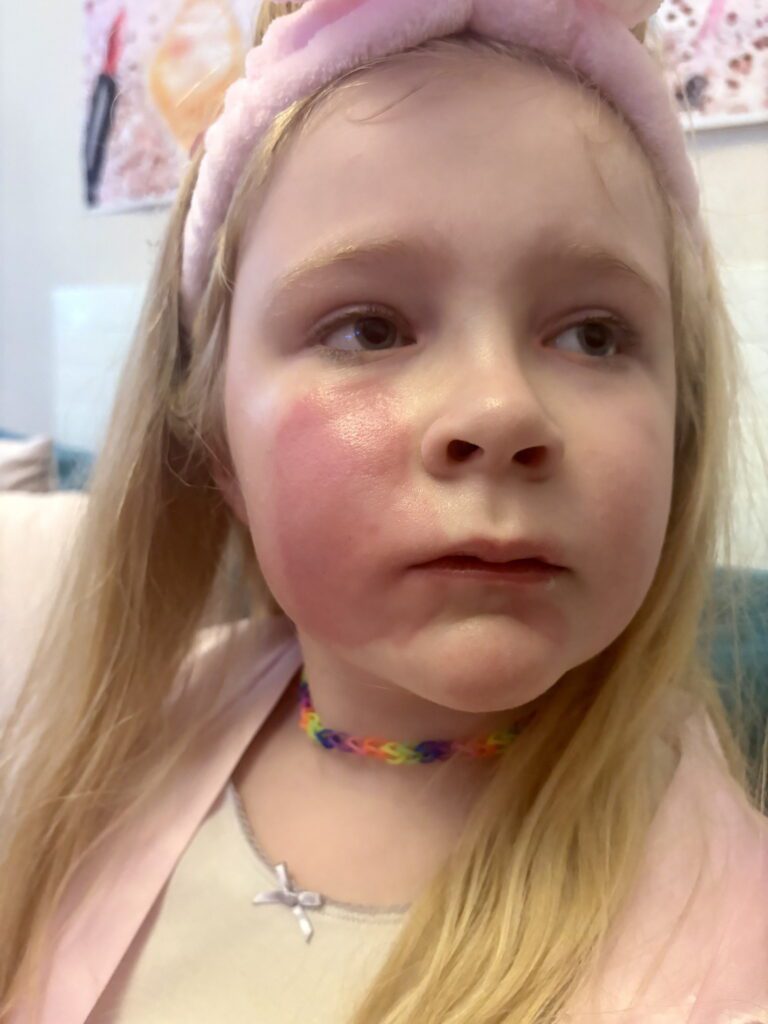
Sarah said Ava has been left with a little bit of redness on the cheeks but is OK.
She would like to clearer labelling on Too Faced and similar products packaging on their websites.
She said: “I’m not the only idiot.
“It needs to be clearer labels.
“If I can do it, anyone can.
“I’m not going to use it again.”
Too Faced said: “While most customers use this product without any issues, skin sensitivities vary from person to person, we suggest reviewing the Lip Injection Lip Gloss and its ingredients with your health care provider to determine if it’s suitable for your use.”
“I ‘reward’ myself with £100 gifts after my periods – it’s rough and we deserve it”
A woman spends up to £100 per period each month on “treats” to get her through.
Emily Rae Baker, 31, says she experiences “rough” periods which cause her whole body to “shut down”.
She’s currently in the process of getting her painful periods investigated – and has been placed on a 52-week waiting list for a gynaecologist.
As motivation and reward for getting through it each month, she’ll treat herself to anything she fancies during – and after.

She doesn’t budget – and says her daily treat can be anything from a £5 coffee to a £100 item of clothing.
Emily, a professional dancer from Derby, Derbyshire, said: “When your period is tough and you feel like the devil is in your body – it can be a little silver lining to treat yourself afterwards.
“I suffer quite badly with my periods – they’re quite intense.
“My way of getting through my period is promising myself little treats and rewards.
“You’re not going to see me pull up in a £5k Range Rover any time soon, but I don’t focus too much on budgeting for it.”
In December 2024, Emily came up with the idea of treating herself to gifts after each period, while working in Dubai.
During the five-day interval, she spent £100 on luggage, New Balance trainers and a tracksuit from Boohoo.

But she says the gifts don’t always have to be lavish – as sometimes she’ll just fancy a freshly-made coffee, scented candles, or hot water bottle, often costing £5-7.
“I’m not flashy – I like doing wholesome things as well, like taking myself out for a meal,” she said.
“I’m definitely not advising everyone to go out and spend loads of money.
“It doesn’t have to be a big present and you can live within your means – it could be something as small as a Starbucks.”
Emily says she’s always suffered from painful periods – but is currently unsure why.


She feels like her body goes into “full shutdown,” and getting out to buy her treats is motivation enough to leave the house.
“With my job as a dancer, it’s rough,” she added.
“I suffer really badly with stomach pain, and it’s just nice to know you’ve got that little treat coming.”
For her February cycle, Emily plans to spend up to £100 on a fine-line tattoo of a quote on her right arm and hand.
She’s been wanting to treat herself to the design since following the artist on TikTok, and finally feels ready to take the plunge.
“As a dancer, I can’t really have naff tattoos,” Emily said.
“I’d wanted this fine line tattoo for a long time – I found an artist on TikTok, got chatting to her, and loved her work.
“So I thought: ‘I’m going to book it as my February treat.’
“It’s my little silver lining.
“I won’t say what the quote is – but it’s very close to my heart and a daily reminder to just keep being me.”
A LIST OF EMILY’S ‘PERIOD TREATS’:
A blanket
Some scented candles
New Balance trainers
A tracksuit
A new pair of glasses
Starbucks coffee
A fine-line tattoo
“I was clinically dead for 14 minutes when I gave birth to my healthy baby girl”
A mum was ‘clinically dead’ for 14 MINUTES before waking up to discover she had given birth to a bouncing baby girl.
Natasha Sokunbi was 37 weeks pregnant when she called 111 after she suffered chest pains and was struggling to breathe.
The 30-year-old was advised to go to A&E where she collapsed of a cardiac arrest in the waiting room at Royal Stoke University Hospital.
As medics desperately tried to bring her back to life, doctors also battled to save her unborn baby.
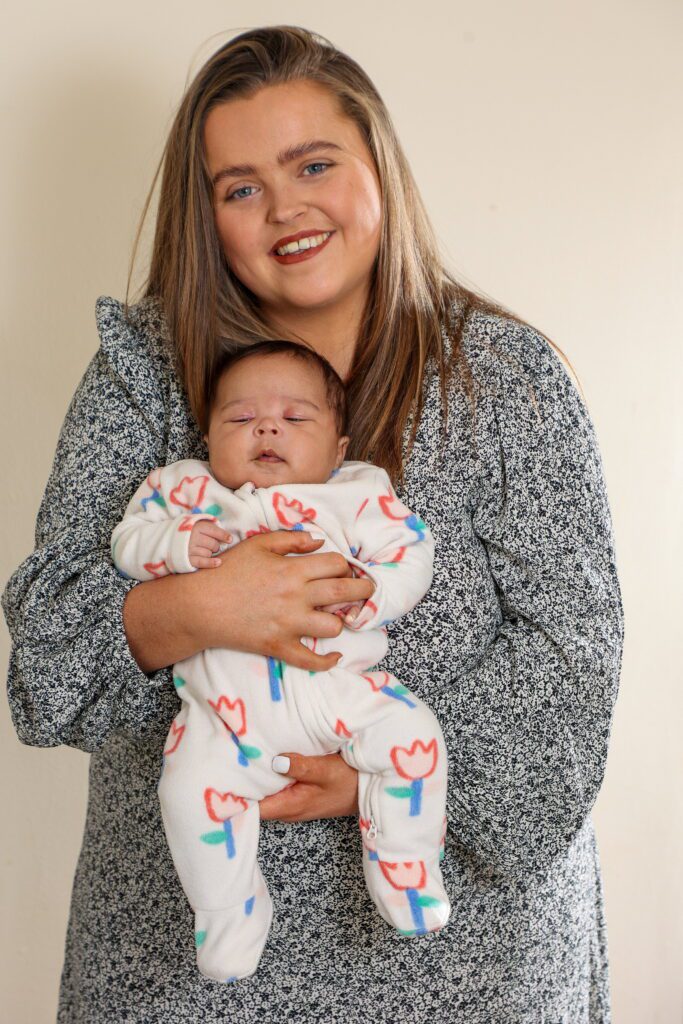
Just four minutes after being rushed into surgery, doctors delivered 6lbs 7oz baby girl Beau via emergency caesarean section.
Medics spent more than 30 minutes resuscitating Natasha before she was stable enough to be put into an induced coma.
She woke up the next day in the critical care unit and was told she had had given birth to a girl.
Natasha, from Stafford, said: “My heart wasn’t beating when the doctors delivered Beau. I was basically dead when they pulled her out.
“One team of medics were delivering her via C-section while another team performed CPR on me.
“The next thing I remember was when I woke up in intensive care and my husband walked over to me with a photo of Beau and said ‘it’s a girl’.
“We hadn’t found out the sex so it was a complete surprise.
“I couldn’t see Beau straight away because I was still very weak and she was in the neonatal unit but I finally saw her a few days later.
“I was really poorly but the doctors and medical teams were amazing.
“They told me I’d been clinically dead for 14 minutes. They saved my baby and they saved me.”
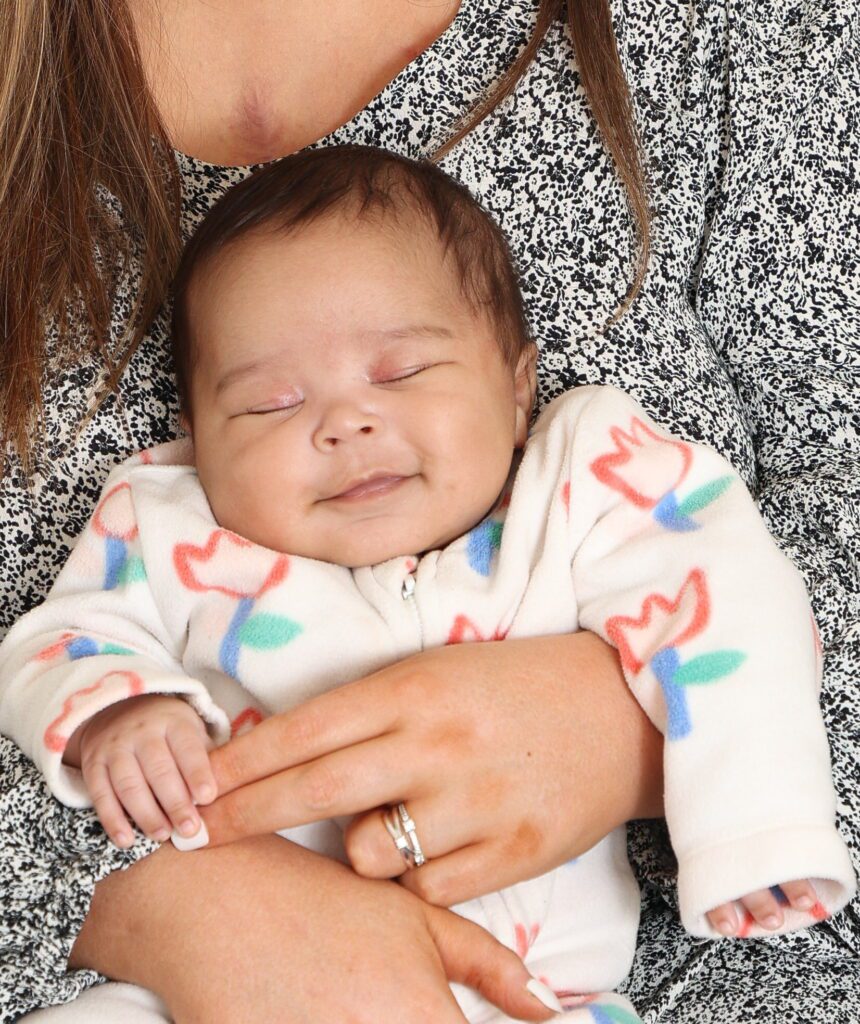
Natasha and husband Ayo, 29, had been looking forward to the birth of their second child when she collapsed on December 3.
Support worker Natasha, who is originally from South Wales, said: “I wasn’t feeling well for a couple of weeks because of chest infection.
“On that morning I called 111 who advised me to make my way to the Royal Stoke.
“I got a taxi to the hospital and went into triage and told them I was really having problems breathing and they told me to wait.
“As I walked back into the waiting room I collapsed and fell forward onto my baby bump.
“I remember bits, like the doctors performing CPR and putting a defibrillator on me.
“When I was having the C-section I remember being in pain but then everything going black.”
After Beau was delivered, doctors called Natasha’s husband Ayo, also a support worker, who rushed to her bedside.
Natasha said: “Ayo had no idea I was in hospital because he was asleep with our other baby daughter when I took a taxi to A&E.
“When he received a call from the hospital he thought they were telling him that I’d had the baby but the said he should get here straight away.
“He was so good. When I was in the coma I can remember hearing him talking to me saying ‘Come on Tash’ ‘Please wake up.’”
Natasha spent three weeks in hospital and had an ICD heart-starter device fitted to prevent her suffering another cardiac arrest in the future.
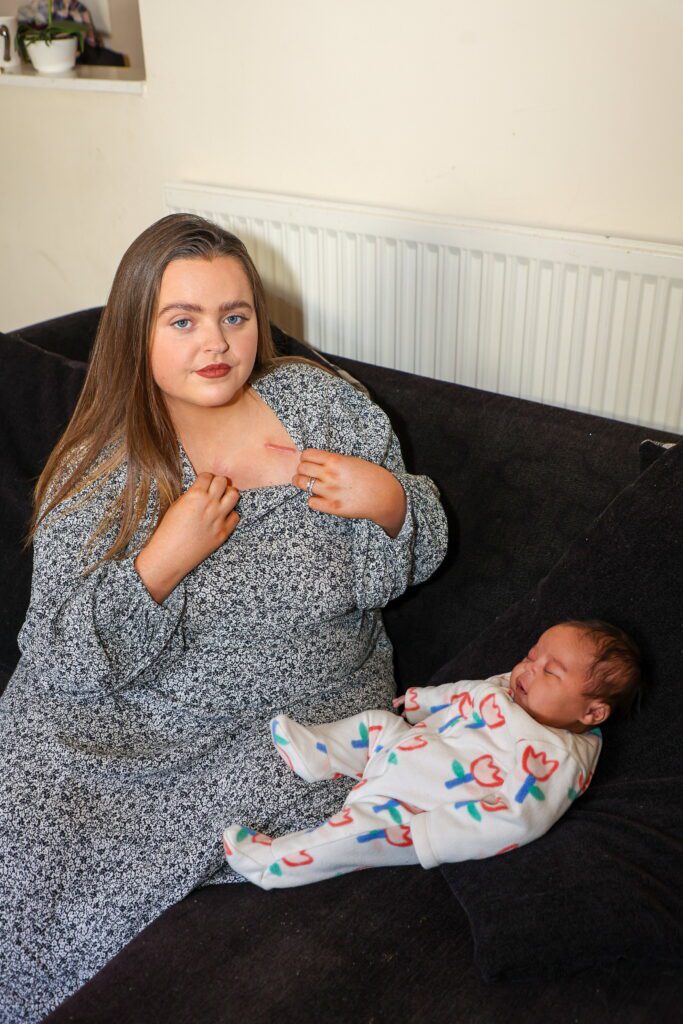
The mum-of-two is now back home and looking after Beau and her 15-month-old daughter Love.
She said: “I have had heart problems and I think the pregnancy put extra strain on me.
“I still have flash backs and worry that it’ll happen again but I’m just so grateful to the doctors for saving me and Beau.
“To start with I couldn’t hold her very well, but I always tried to do skin to skin with her.
“Being a mum of two is great and I’m regaining my strength and independence.
“Beau is a miracle, and you can never fully put what they’ve done for us it into words.
“The staff were all fantastic. Now I’m much more appreciative of life and won’t take anything for granted ever again.”
In recognition of their actions staff involved in the care of Natasha and Beau have been presented with the Chief Executive Award.
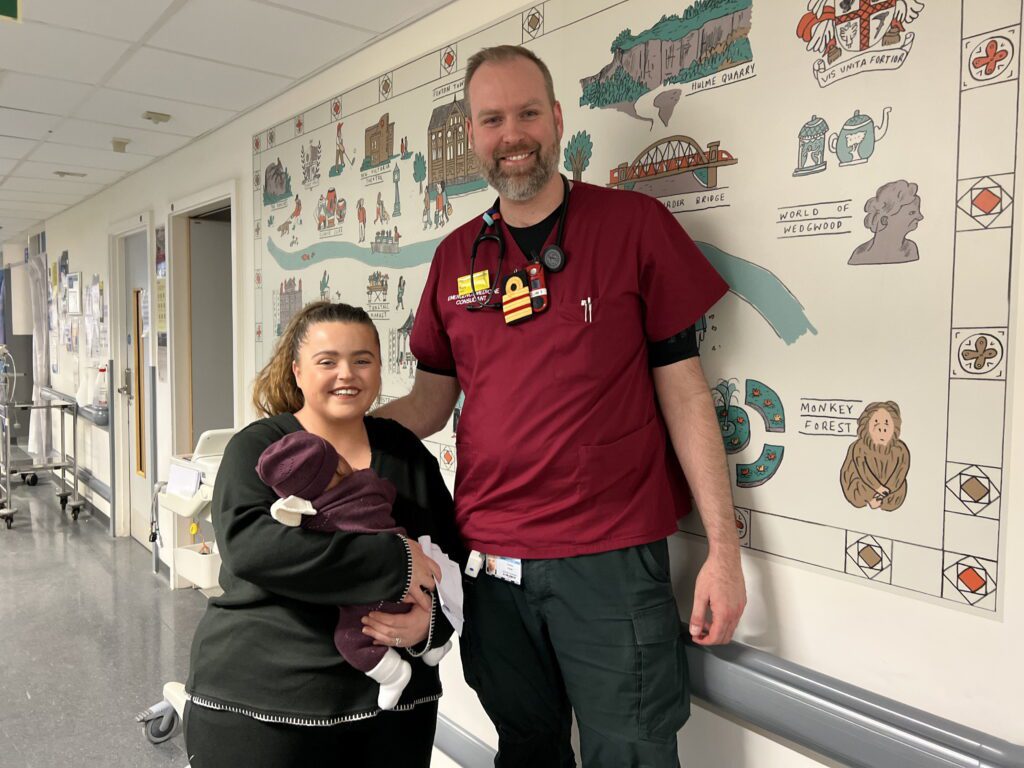
Dr Andrew Bennett, who was one of the first doctors to treat Natasha, said: “The issue when you have a mother who goes into cardiac arrest is that you not only have the team required to resuscitate mum, you very quickly of course when the baby is out, also have a team ready to resuscitate the baby if that’s required.
“So the number of clinical teams involved is huge. This has got to be one of the proudest moments that this department really has ever seen and that collaborative effect from all involved was incredible.”
Senior sister, Alison Hopwell, added: “It’s a rare event but it happened and it happened on a very very busy December morning.
“The department was very busy; however, the whole team, too many to mention, from all specialties pulled together on that morning.”
Dr Simon Constable, chief executive, said: “Natasha’s case is about as serious as it gets and involves not just one person but multiple teams looking after and getting the outcome for her and Beau.
“So it’s a great testament to the real skill and team work that made the outcome what it is because it could have been so very different and I think we recognise that would have been a tragedy.”
“I am a momo twin – we were given a 1% chance of survival”
A woman who is one of the rarest types of twins in the world says she is grateful to be alive after doctors gave her and her sister a one per cent chance of survival.
Hope and her sister, Faith Baxter, both 24, are Momo twins – monochorionic monoamniotic – identical twins who share a placenta and amniotic sac.
Doctors told their parents that if they went to full term there was a chance one of the twins would not survive so they decided to induce them two months early.
The twins spent six weeks in the NICU and were given a one per cent chance of survival.
Hope said it was a “miracle” that both of them are alive and thank their parents every day for their decision to have them induced.
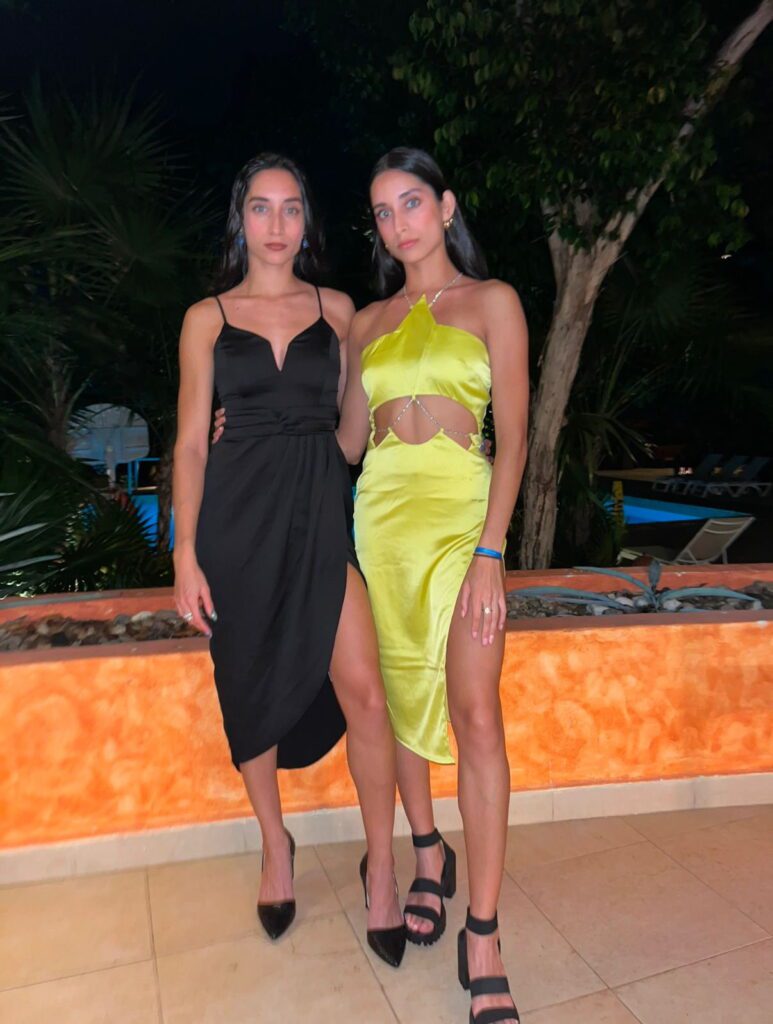
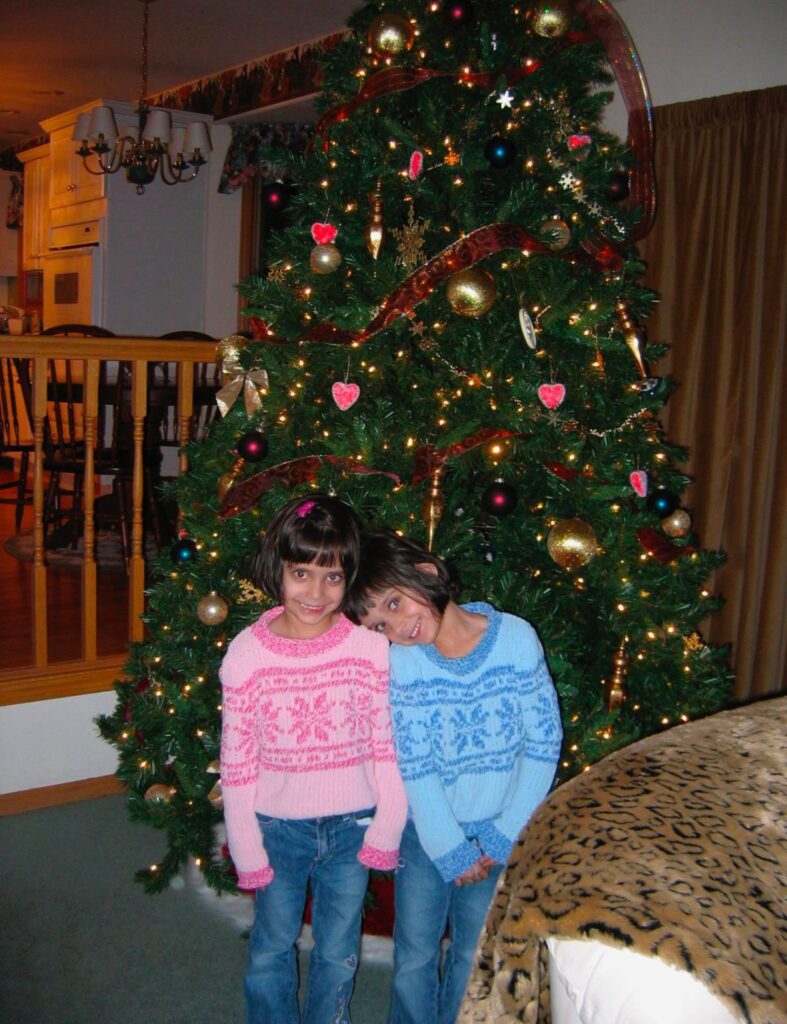
Hope, a dental student, from Lima, Ohio, said: “I didn’t realise the severity and extent of the amount of fear my parents were put through.
“I am so grateful to them to be here – every day is a gift for us.
“On our birthday, we reflect on the fact we are miracle babies. I am so proud of how far we have got.
“Even to have both of us here, alive and well, is a miracle.”
Her mum was five months pregnant when doctors told her she was expecting Momo twins.
Mo/Mo twins have a higher risk of complications during the pregnancy – including infant death and childhood disability – which fuelled their parent’s decision to induce them two months early.
Hope said: “When they found out we were Momo twins, they were told there could be further complications down the line which is why we were born two months premature.
“It was my dad’s call, the doctors didn’t want us out so early as we were fully developed.
“They told my dad that if we went full term there was a chance that one of us might not make it.
“My dad said he wanted both twins to survive and told the doctors he wanted us to be induced two months early.”

The twins were born on August 25, 2000, and spent six weeks in the NICU.
Faith was born with a collapsed lung and Hope was born with heart problems and was being closely monitored.
It was in the NICU that their parents named them Hope and Faith.
Hope said: “It was definitely a scary time for my parents, everything leading up to the birth was scary for them.
“We were named Hope and Faith as our parents weren’t sure if we would make it.
“Doctors gave us a one per cent chance of survival as they didn’t think either one of us would survive.”
Despite being identical twins, Hope said their parents wouldn’t get them mixed up as she was born with heterochromia – the presence of different coloured eyes in the same person.
Hope said: “Lucky for them, they never got us mixed up growing up. The way they would tell Faith and I apart is I have two different coloured eyes.
“I don’t think they struggled with us growing up, they had a system where when one of us would be at pre-school and the other one would be at home with our parents.
“They didn’t want us to completely rely on each other.”
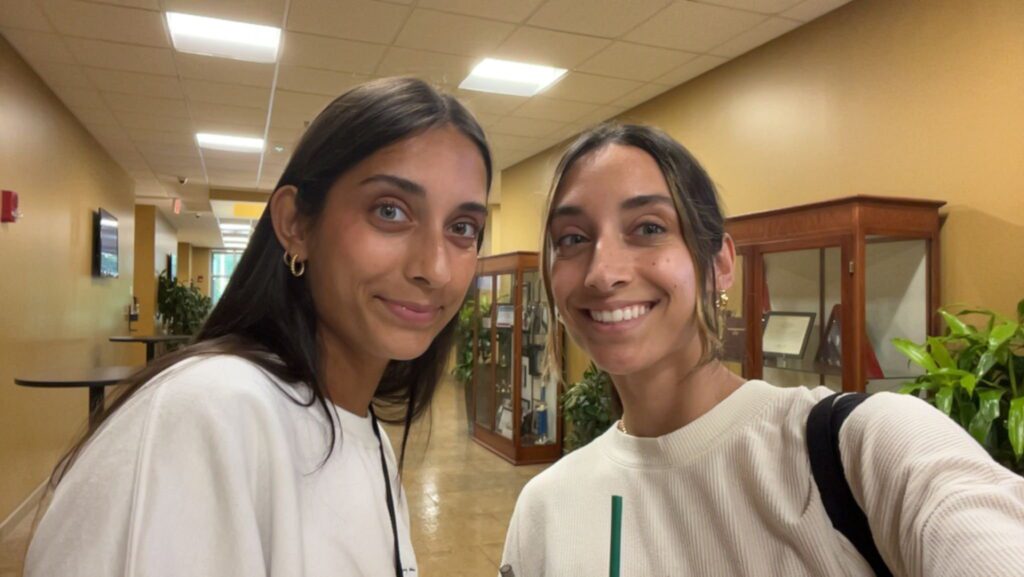
Hope said despite being best friends with her sister, it could be challenging growing up together as they would spend all day at school together and go home together.
Now, the sisters live in completely different states as Faith is training to be a doctor at VCOM-Carolinas, Spartanburg, South Carolina.
Hope said: “I would say we are best friends, we have always motivated each other.
“But there were definitely some struggles, being an identical twin, especially in high school, it felt like a competition with sports, grades and who had more friends.
“Because we’re so busy now, we don’t really realise how we’re not together.
“We are constantly talking to each other over text or FaceTime.
“We are always talking together so we forget how we haven’t seen each other in ages as we always know what we get up to.”
Dad’s accused of “faking” brain tumour symptoms by GP including muddled speech
A dad’s cancerous brain tumour symptoms were dismissed as stress by a GP who even accused him of “faking.”
Stephen Blakeston, 53 when he died, began experiencing troubling symptoms in October 2010, including jumbled speech, severe headaches, and distress, which were completely out of character for him.
But a CT scan later revealed a glioblastoma – an aggressive brain tumour which leaves sufferers with a typical lifespan of 12-18 months.
But Stephen, a former council grounds worker, died suddenly on 13 July 2011.
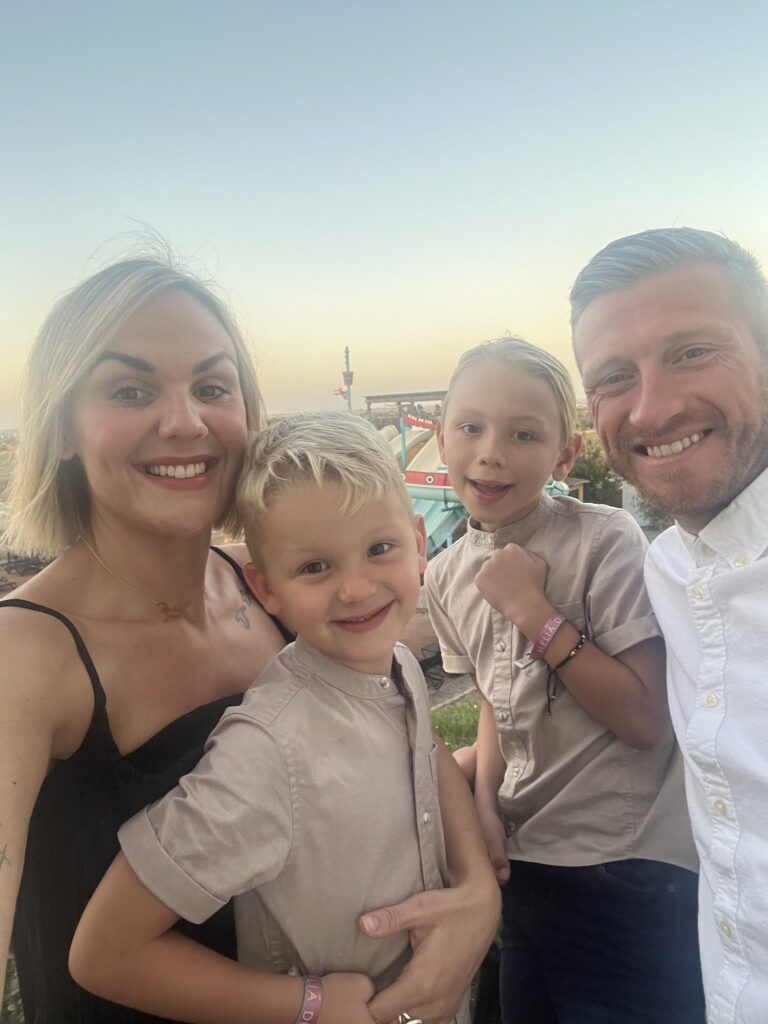
Daughter Hollie Rhodes, 37, a PE teacher and mum-of-two from Hull, is running the London Marathon in his memory, to raise money for Brain Tumour Research.
She said: “In October 2010, Mum called me saying he was jumbling up his sentences and not making any sense. He also had a massive headache and was really distressed, which wasn’t like him at all.
“I couldn’t believe it when we visited the GP, who dismissed his symptoms as stress-related and even said he was faking, something I know my dad wouldn’t do.
“It was a CT scan at Hull Royal Infirmary that showed he wasn’t faking anything. The scan found a tumour growing on the left side of his brain, affecting his speech.
“He had surgery the next week, which was successful, but the biopsy confirmed our worst fear – it was incurable and cancerous.”
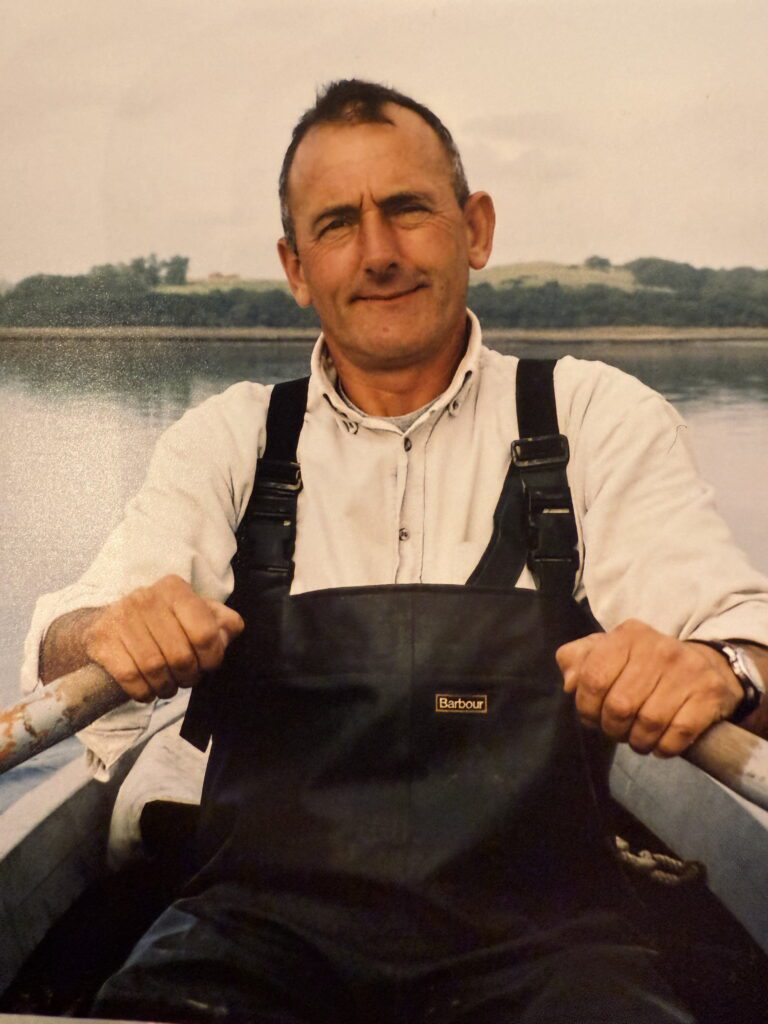
Stephen, survived by his wife, Elaine, daughters Hollie and Lauren, and five grandchildren, underwent one round of intensive radiotherapy and two rounds of chemotherapy to halt the tumour’s growth.
Despite experiencing fatigue, his mood remained positive, his family say, and scans showed no signs of further tumour regrowth.
But he died after collapsing at home, after a blood clot travelled to his heart – related to his treatment or the tumour.
“Dad walked to my sister’s room and barely got through the door when he collapsed.” Hollie said.
“We called an ambulance but unfortunately paramedics couldn’t save him, and they told us after about 20 minutes of fighting that he didn’t make it, and he died on her bedroom floor.
“It was so traumatic and unexpected.
“Although his brain scans were clear, a blood clot was found on his heart, which we’re not sure if it formed because of his treatment or the tumour.
“It was horrible for us to lose him so suddenly, but there is some comfort in knowing it was quick and likely the way he would have wanted to go. I’ll always miss hearing his laugh.”
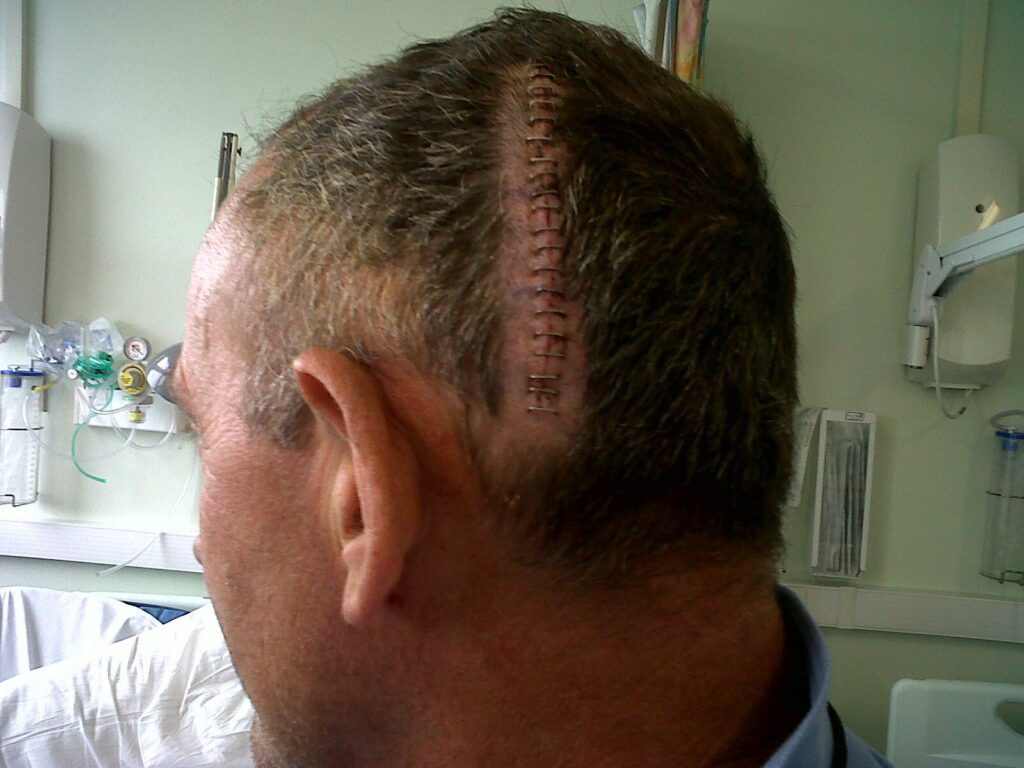
Brain tumours can affect anyone at any age, and kill more men under 70 than prostate cancer.
Around 12,000 people are diagnosed with a primary brain tumour each year in the UK.
Hollie, who is head of PE at a sixth form college, added: “I have personally known three people impacted by brain tumours: my dad, my oldest friend’s little boy, Roux, and another friend’s sister who died after her brain cancer metastasised from breast cancer.
“The current level of funding for research is just not enough.
“It’s the biggest cancer killer of children and adults under 40, so it should absolutely be a priority to stop these deaths. It almost feels like people view brain tumours as a final prognosis. That whole narrative needs to change because more funding in research would bring hope to those impacted.”
Hollie is balancing work, family life, and a rigorous training schedule as she prepares for the iconic 26.2-mile course.
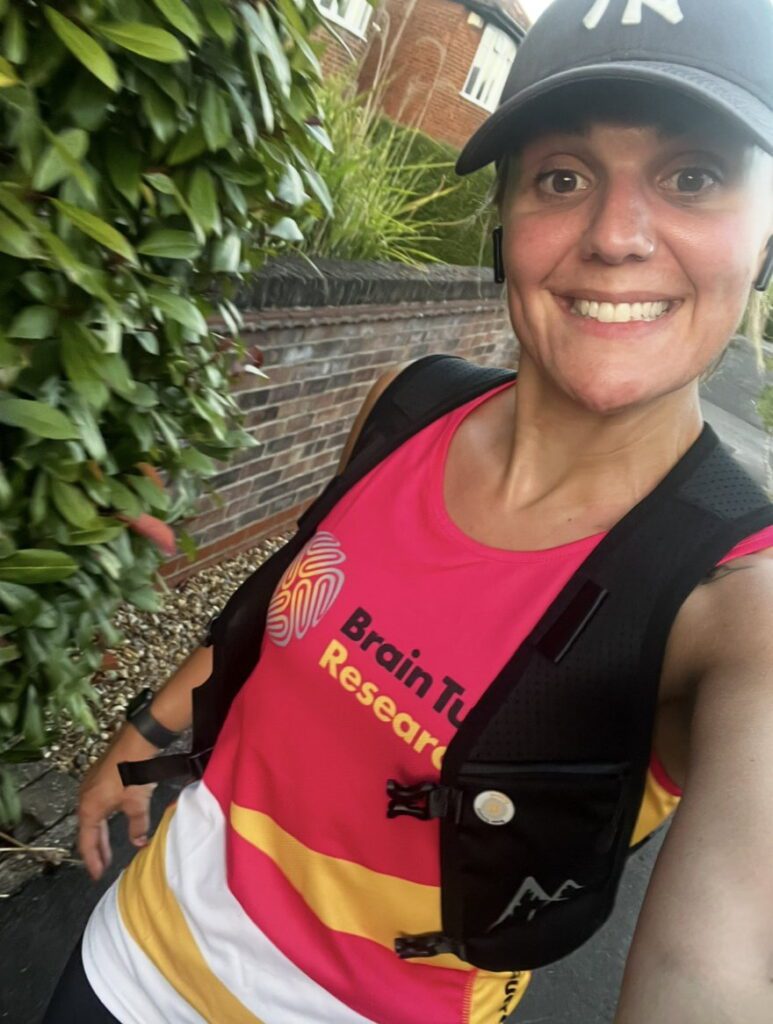
Inspired by memories of her father, she is determined to complete the challenge and raise awareness for Brain Tumour Research.
“Running is definitely not my forte; my colleagues with tell you that and say I’m forced to do it in my work role,” she said.
“On the day, I’ll be thinking of my dad and how he never got to meet his grandchildren, who he would have adored, with Blake, my eldest, named after him.
“Remembering his struggles and how a cure could have kept him with us gives me the strength to keep going. Four or five hours of running is nothing compared to what dad and so many others endure. I’ll remind myself to push through and do this for them.
“Dad was such a hilarious character with a wicked sense of humour. He was always supportive of my sister, Lauren, and me in everything we did.”
Carol Robertson, national events manager at Brain Tumour Research, said: “We’re so grateful to Hollie for taking on this incredible challenge in memory of her dad. Her determination and courage are truly inspiring. Every step she takes in the marathon will help us raise awareness and much-needed funds for vital research into brain tumours. We’ll be cheering her on in April.”
To support Hollie’s London Marathon fundraiser, visit: https://www.justgiving.com/page/runhollierun
“I have 40+ allergies – including water – I track them on an Excel spreadsheet”
A woman with over 40 allergies – including WATER – has to use a colour-coded spread sheet to keep track of them all.
Chloe Ramsay, 19, was born with lots of food allergies and would even go into anaphylactic shock after eating certain foods – such as bananas and potatoes.
While she no longer ends up hospitalised from allergic reactions thanks to treatments in childhood, she currently has a list of 40 things that can cause her mouth and throat to swell up dangerously, or bring her skin up in hives.
They include kiwis, strawberries, raspberries, blueberries and grapes.
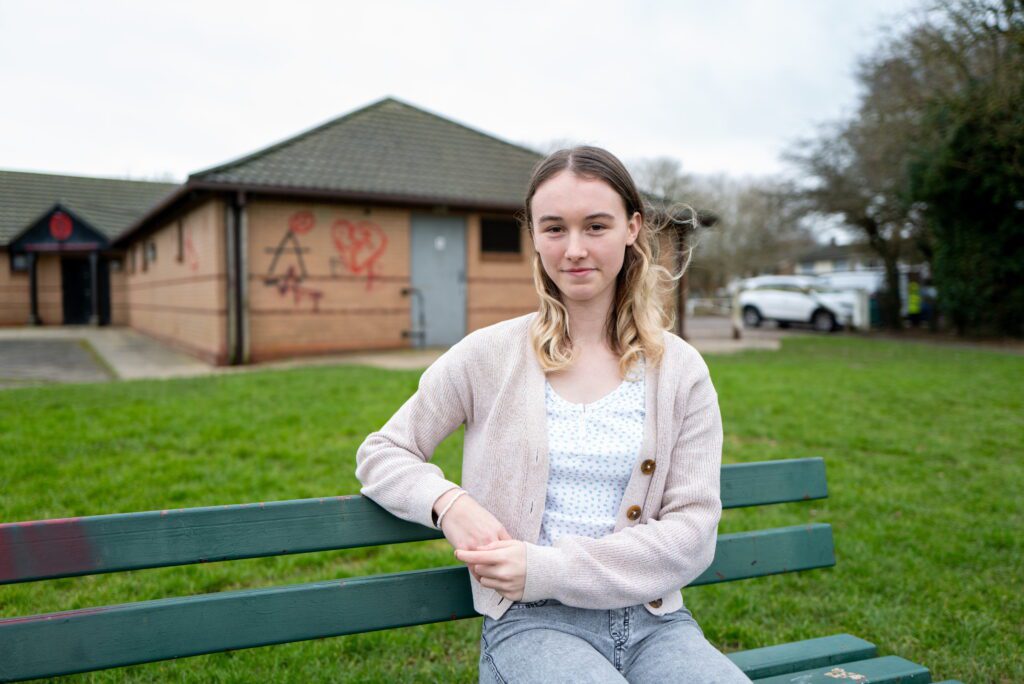
Chloe was diagnosed with ‘pollen food syndrome’ – an allergy to any pollen-derived substances – including sweets, fruits, and even perfumes in June 2023.
This explained most of her allergies – but her most unusual is an allergy to WATER, known as aquagenic urticaria.
When unmedicated, showers cause her to flare up in hives and getting caught in the rain leaves her “wanting to scrape [my] skin off with a knife”.
New allergies frequently pop up and their severities can change too – meaning Chloe has to keep track of them with a colour-coded spreadsheet.
Chloe, a carer, from Havant, Hampshire, said: “We found out about my first allergies when I was six months old and my mum was weaning me.
“If I was given potatoes or bananas I would go blue and pass out, but luckily my reactions aren’t that bad any more.
“They change, but currently I can’t eat foods like strawberries, kiwis, fruit juices and I can’t use scented shampoos and body washes.
“With the water allergy, it just came on one day – I thought I’d used a body wash I was allergic to, but it got worse.
“Whenever I washed my hands I would get massive rashes and felt like ants crawling on my skin.
“I’ll have to be giving myself injections to treat my allergies for life.”

Chloe remembers frequent trips to hospital as a child to get epipens and medication.
When she ate a banana or potatoes she would go into anaphylactic shock and was rushed to A&E.
Over years, the hospital used a ‘microdosing’ technique to train the body not to go into anaphylaxis and to reduce her severe reactions.
Some allergies faded away over the years, while new ones emerged – and she stopped being able to eat any fruit at all.
The reactions were “invasive” such as swelling lips, redness and a “scratchy” sensation when she breathes.
As a result of what would later be diagnosed as pollen food syndrome, she also needed to avoid perfumes, scented soaps and even wood-smoked meats because of the pollen in the trees used to smoke it.
She said: “At school I used to have my own little blue band so the dinner staff knew my allergies.
“They had to make my food from scratch.
“Now I’m at university, I struggle because a lot of the social stuff is based around food and I have to constantly be checking the menu.
“It makes me quite anxious to be sitting around food that I know I can’t eat.”
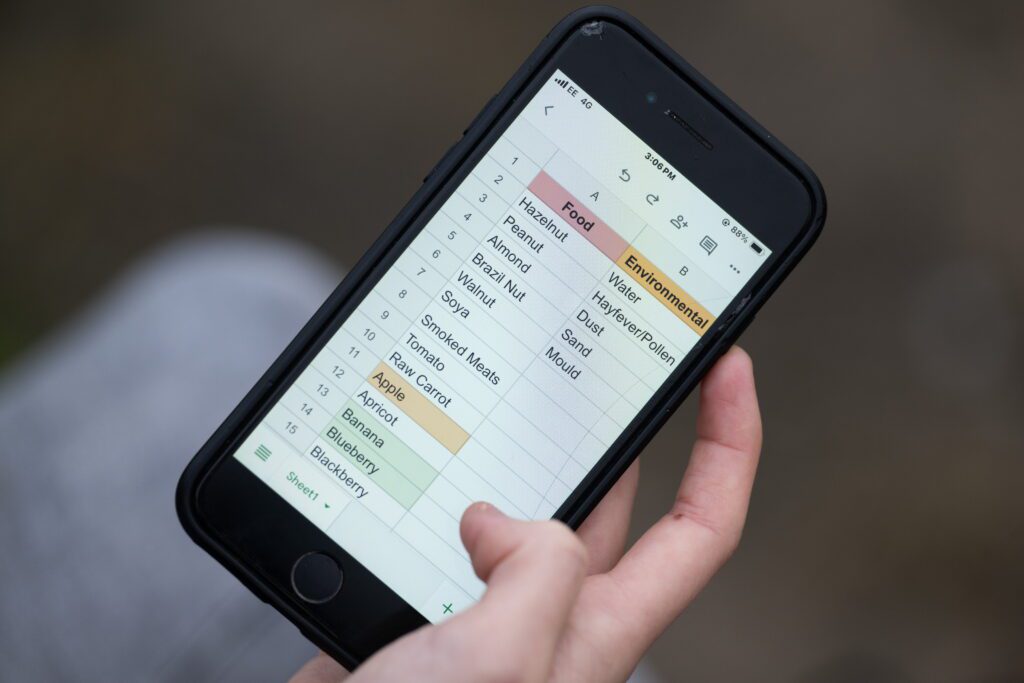
In October 2022, she also started breaking out in hives when her skin touched water.
Her reactions were sometimes so intense she would be unable to focus on anything else.
She was issued a diagnosis of aquagenic urticaria – an allergy to water on her skin – but luckily, drinking it caused no issues.
She said: “It can be itchy and painful, like having ants crawling on your skin.
“The allergy came almost suddenly. I would be fine taking showers then one day I started itching and each time was worse.
“I changed my shampoo, conditioner, body wash, flannel, scrubber, and the water temperature – nothing helped.”
The condition worsened over time and became debilitating for her.
She said: “Once I got stuck in the rain waiting for a train and by the time I got inside, I couldn’t stop scratching – I looked like a drug addict.
“I felt like I wanted to scrape my skin off with a knife. I told even told my mum ‘I can’t do this any more’.”
Last year, she was introduced to a medication injected monthly to treat her allergies – after a medical board approved the strong drug because of her severe situation.
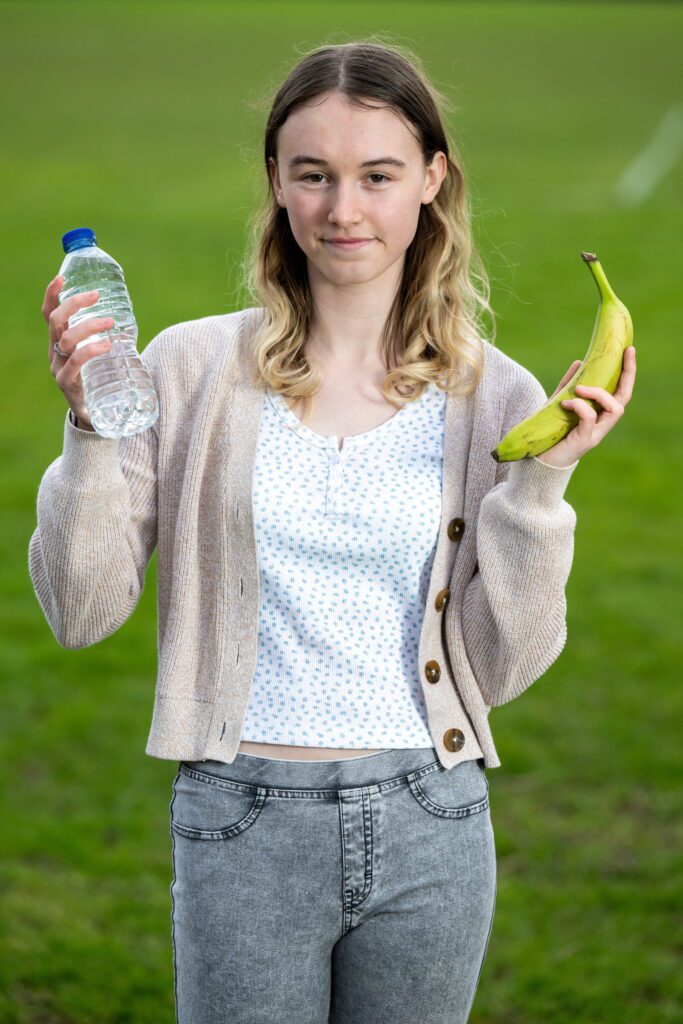
Twice a month Chloe has to inject herself with it to keep her allergies at bay – but she may need to be on it for life.
With the drug, her water allergy is “almost completely gone” but she still needs to be careful around perfumes and eating pollen-derived substances when on the medication.
She has to keep track of whatever foods she reacts to, and how severely, using a traffic-light colour coded system on an Excel spreadsheet.
She said: “So far, nobody has been on that injection for life. Apparently I’m one of the unlucky three per cent that wasn’t completely cured by it.
“I’m so unlucky – I used to get quite upset, but I just have to laugh it off now.
“I’m allergic to so many things that my parents joke ‘what will you be allergic to next, oxygen?’.”
LIST OF THINGS SHE’S ALLERGIC TO:
Peanuts
Hazelnuts
Soya
Smoked meats
Tomato
Carrot
Apricot
Banana
Blueberry
Blackberry
Cherriy
Cranberry
Grape
Grapefruit
Kiwi
Mango
Orange
Papaya
Peach
Pear
Raspberry
Strawberry
Dried apricot
Dried mango
Dried banana
Raisins
Dried cranberry
Tinned orange
Tinned pear
Tinned peach
Tinned apricot
Tinned apple
Tinned mango
Fruit pastilles
Wine gums
Haribo
Skittles
Jelly beans
Jelly babies
Water
Pollen
Dust
Sand
Mould
Dogs
Cats
Glue
Face paint
Insect bites
Perfumes
Candles
Air freshener
Deodorant
LUSH stores
Postmaster flies 4,000 miles to hand-deliver letter from King to his great aunt
A postmaster has dispatched his ‘furthest letter yet’ after he hand-delivered a card from King Charles to his great aunt in America – 4,000 miles away.
Luke Francis, head postmaster of Bude’s Post Office in Cornwall, took a special trip to Florida to deliver a 100th birthday letter to Emlyn Makofsky.
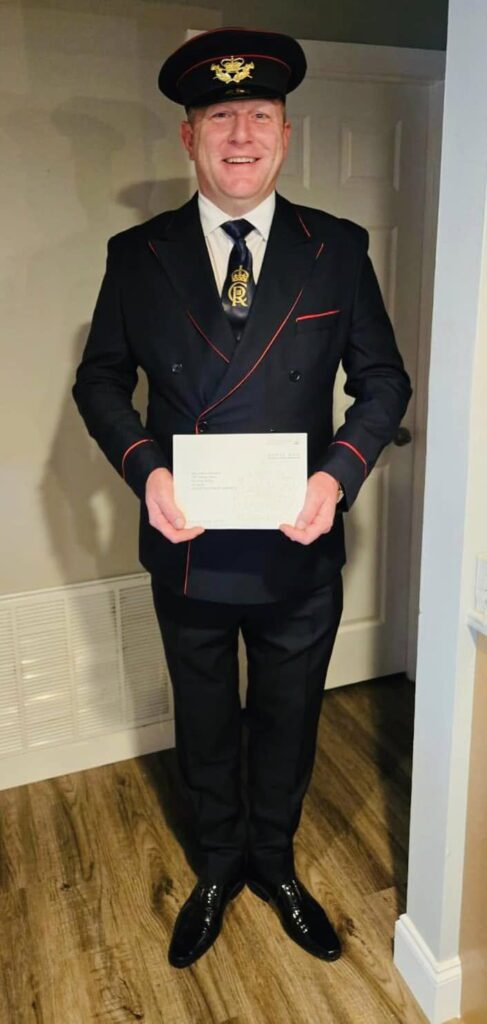
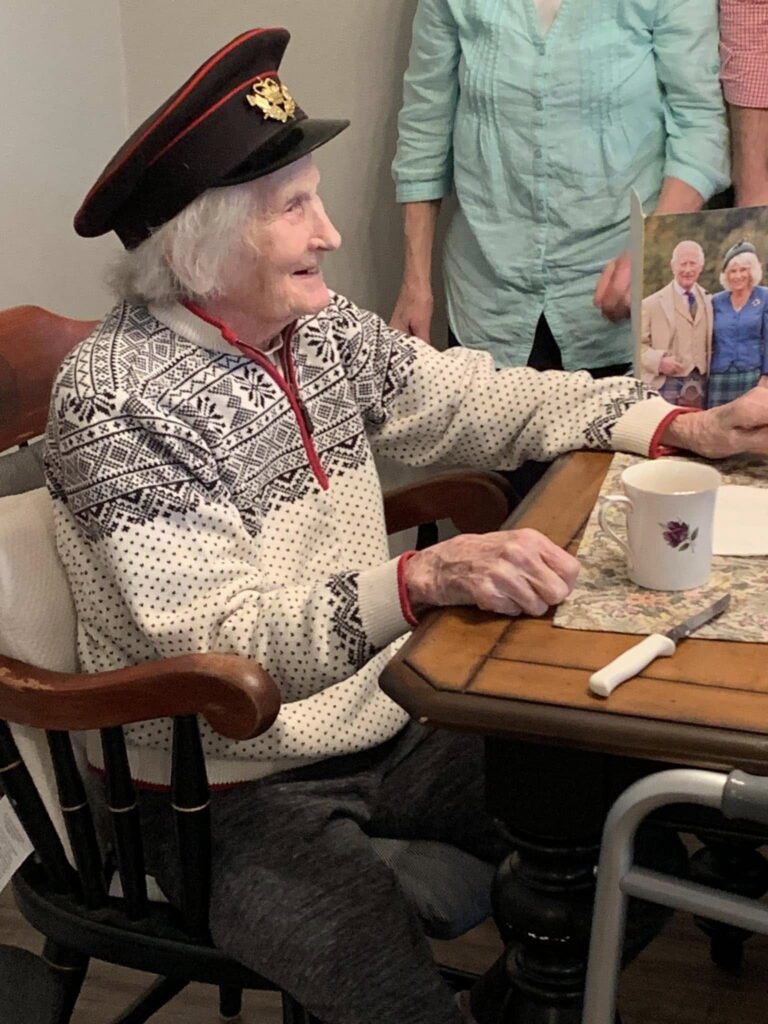
Emlyn Colwill was born one hundred years ago, at Lewdon Farm in Kilkhampton on January 19, 1925.
Growing up she became a nurse, working across North Cornwall, before moving across the pond and meeting her husband, Mr Makofsky.
After receiving a letter from the King, ready for delivery, Luke made his way over to Florida in secret, ready to hand Aunty Emlyn the card himself.
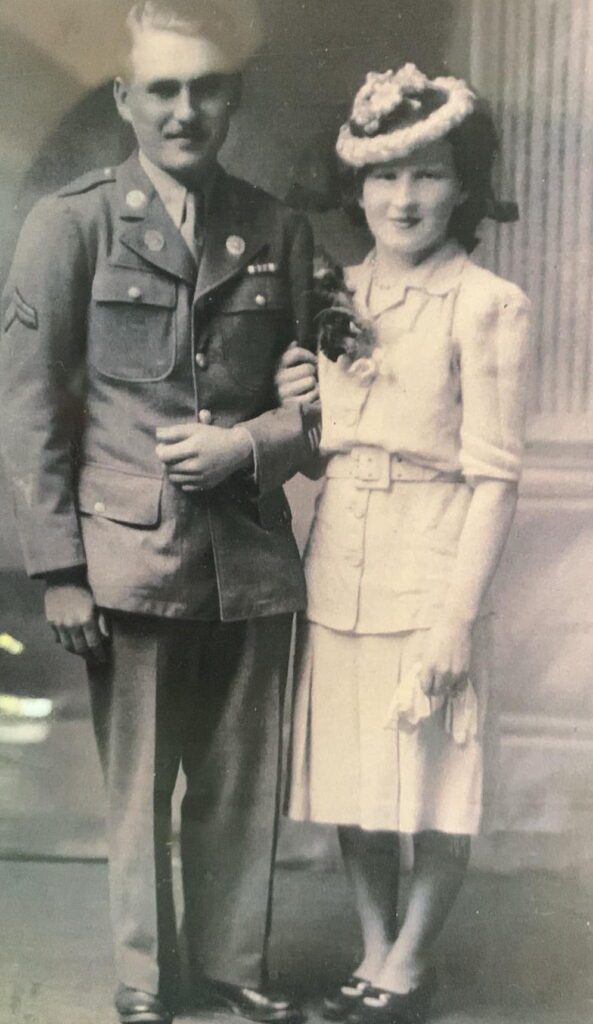

Having arrived, Luke and his family surprised Emlyn with the letter from HM King Charles III congratulating her on her 100th birthday.
Following the big event, Emyln, surrounded by her family, celebrated in style, enjoying a wonderful 100th birthday party, complete with a Union Flag cake and the English national anthem.
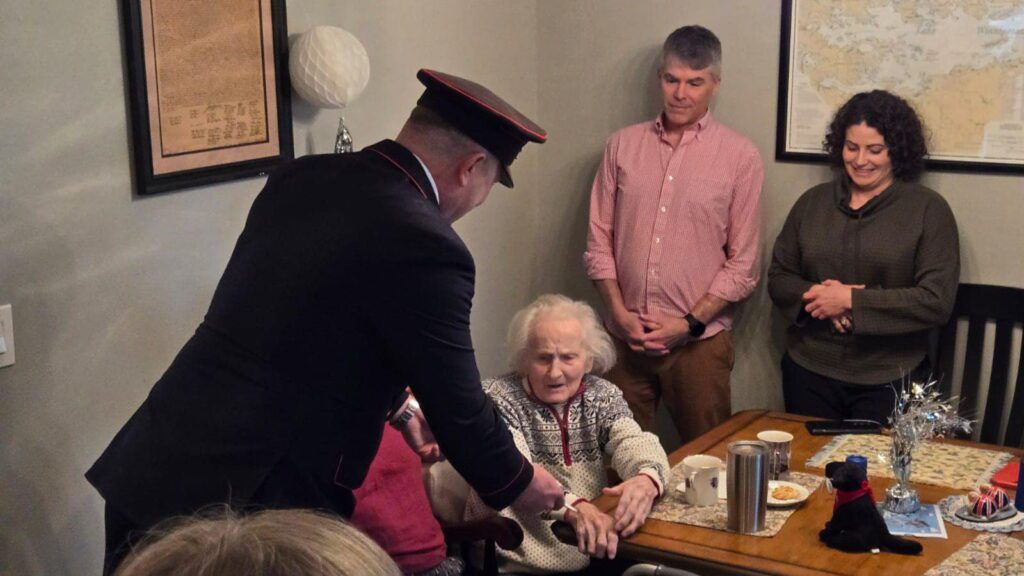
Luke said: “When I handed her the card and she finally got to read it, she got the giggles, she thought it was so brilliant she couldn’t believe it.
“She was overwhelmed and thought it was wonderful and was really privileged to accept the card.”


